“Traveling to Tunisia: A Day-by-Day of my Experiences in the CASE Program” by Clover Gerber
Day 1 (Thursday, May 29):
I arrived at the Tunis-Carthage airport close to midnight on the 29th with 3 other students who flew in with me from Houston. We spent most of the day on a 10-hour layover in Frankfurt where we explored the airport (they had indoor playgrounds, X-boxes, showers, and plenty of hot dog stands). Following the 2 hour flight from Frankfurt to Tunis, we were picked up by an Amideast driver who was kind but who only spoke Arabic and French. This was my first intercultural learning moment on the trip, which brings me to travel tip #1: be sure to learn basic phrases and numbers in French and/or Arabic before you go. Knowing even a little bit would’ve helped tremendously.
After arriving at the Hotel Carthage, located in the heart of downtown Tunis, I unpacked and took a moment to gaze at the vibrant Avenue Habib Bourguiba right from my balcony, and went to bed soon after. I wanted to be well-rested for the first action-packed day of the CASE program!
Day 2 (Friday, May 30):
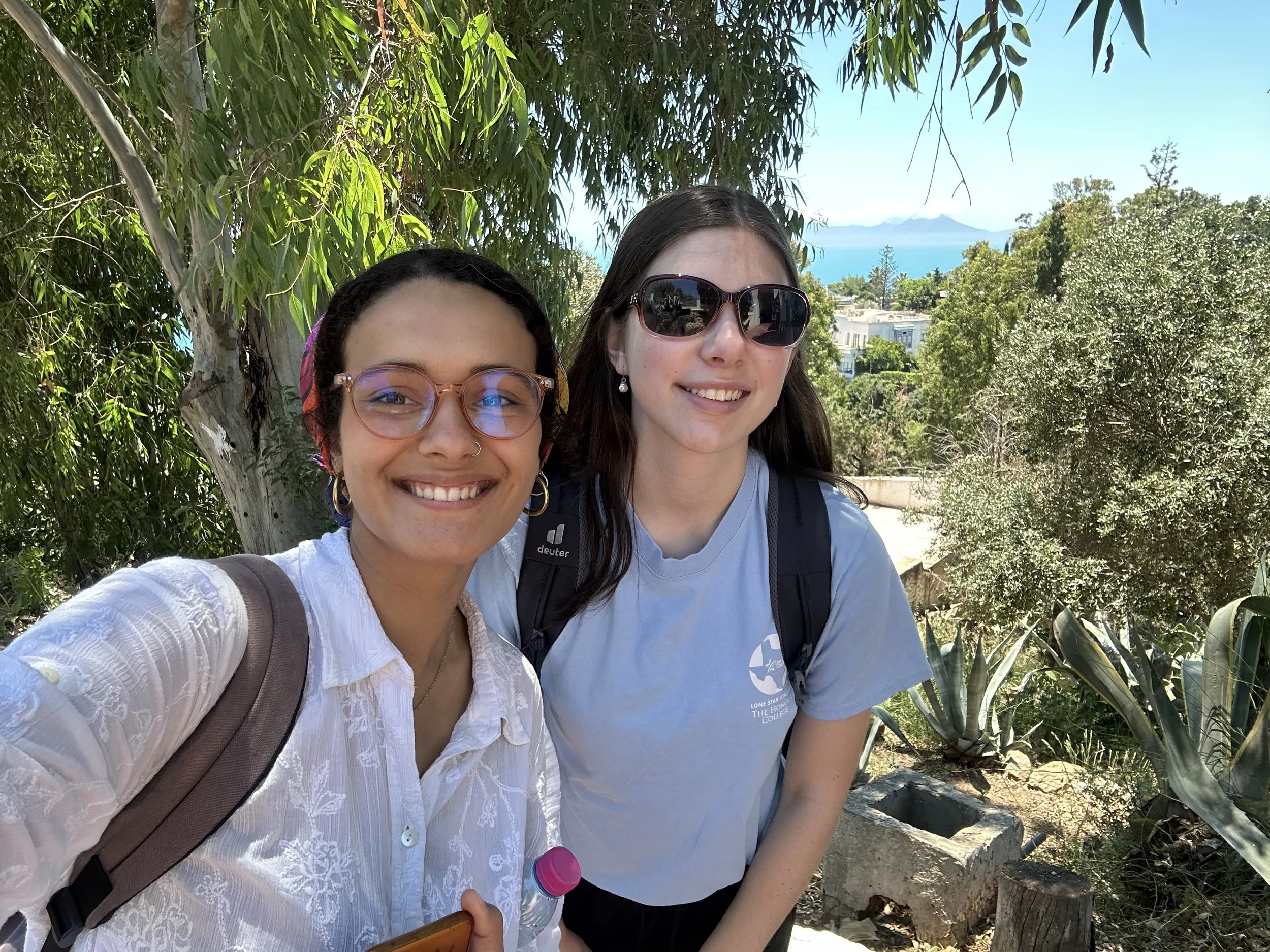
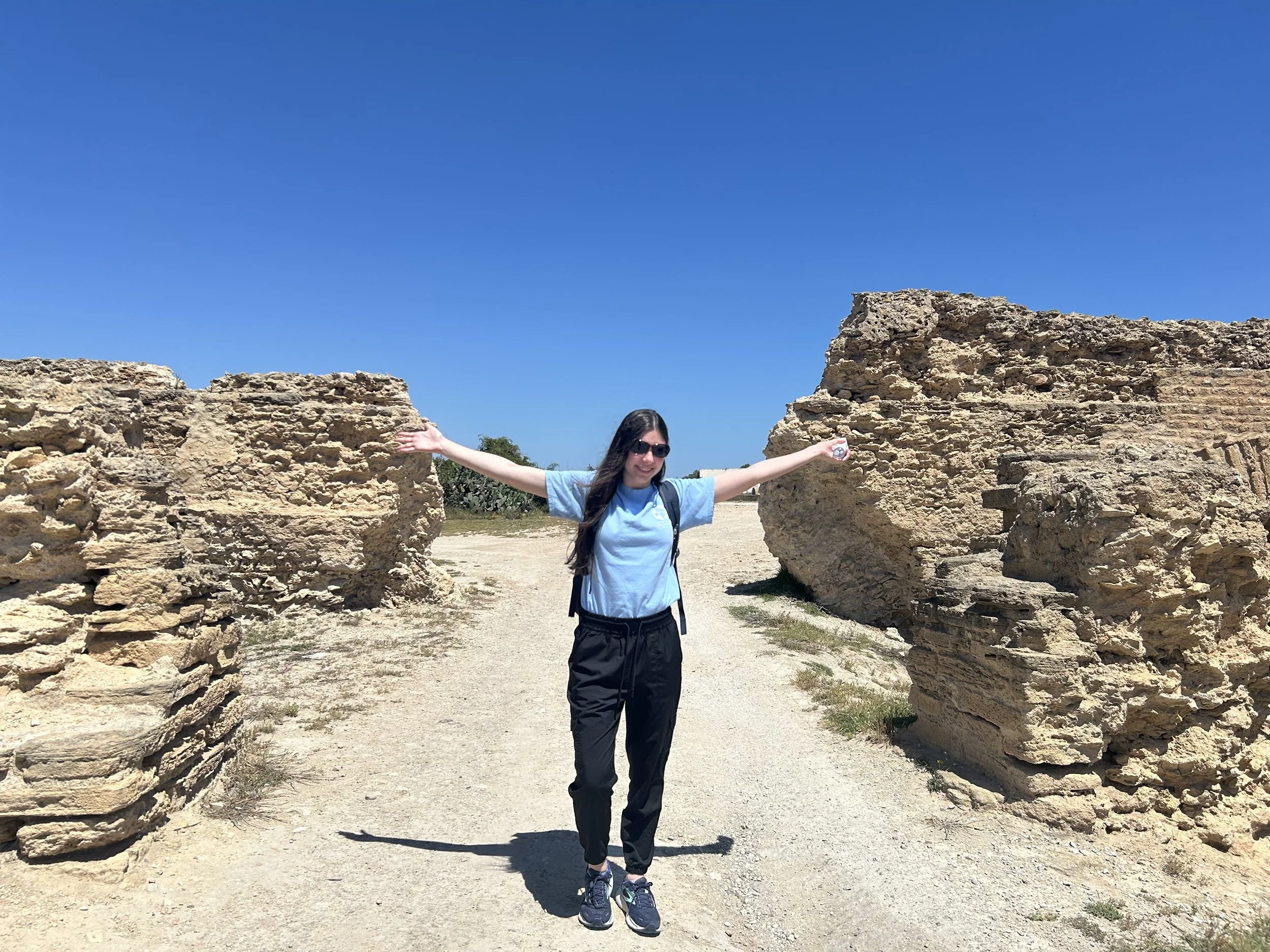
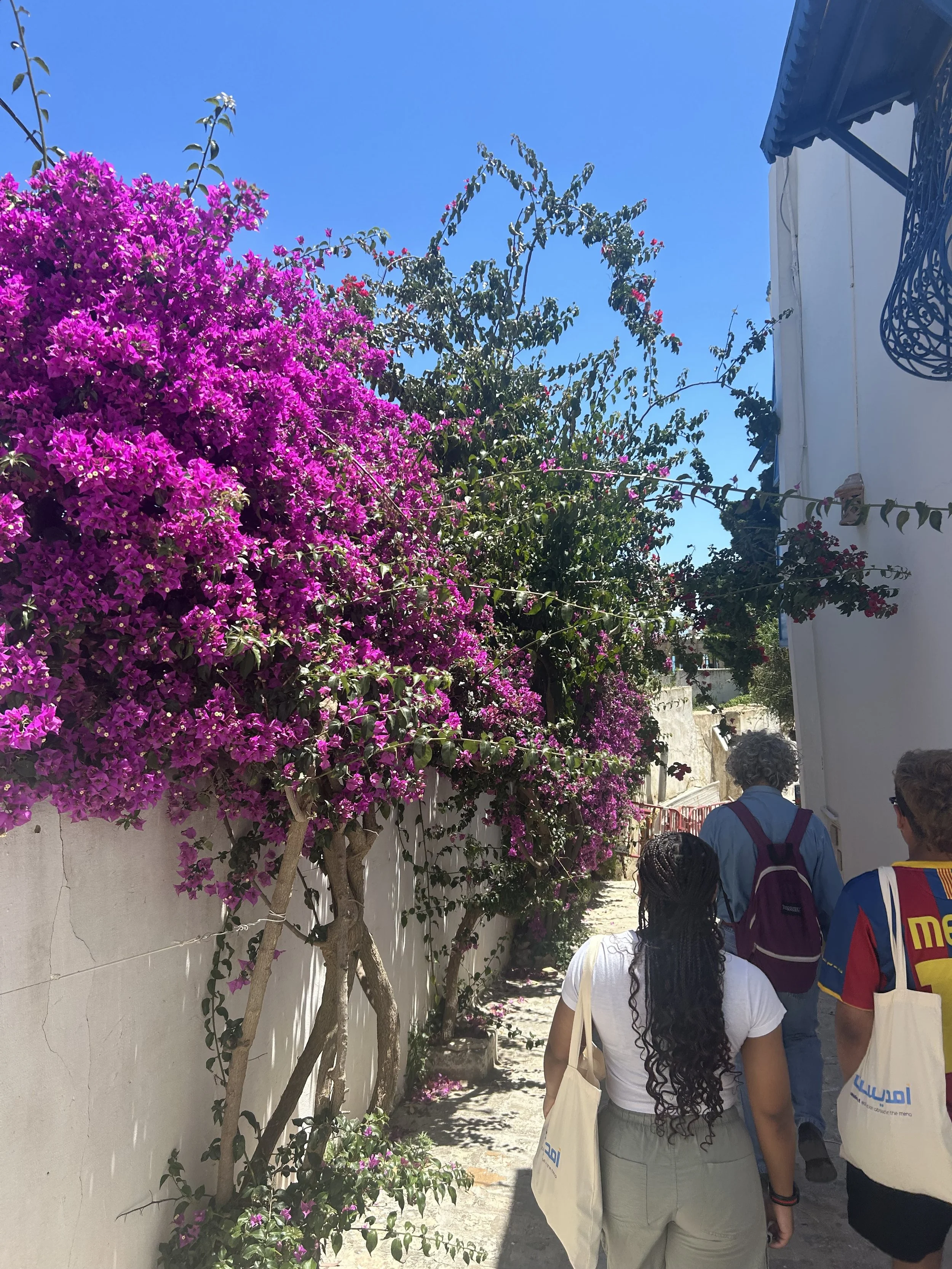
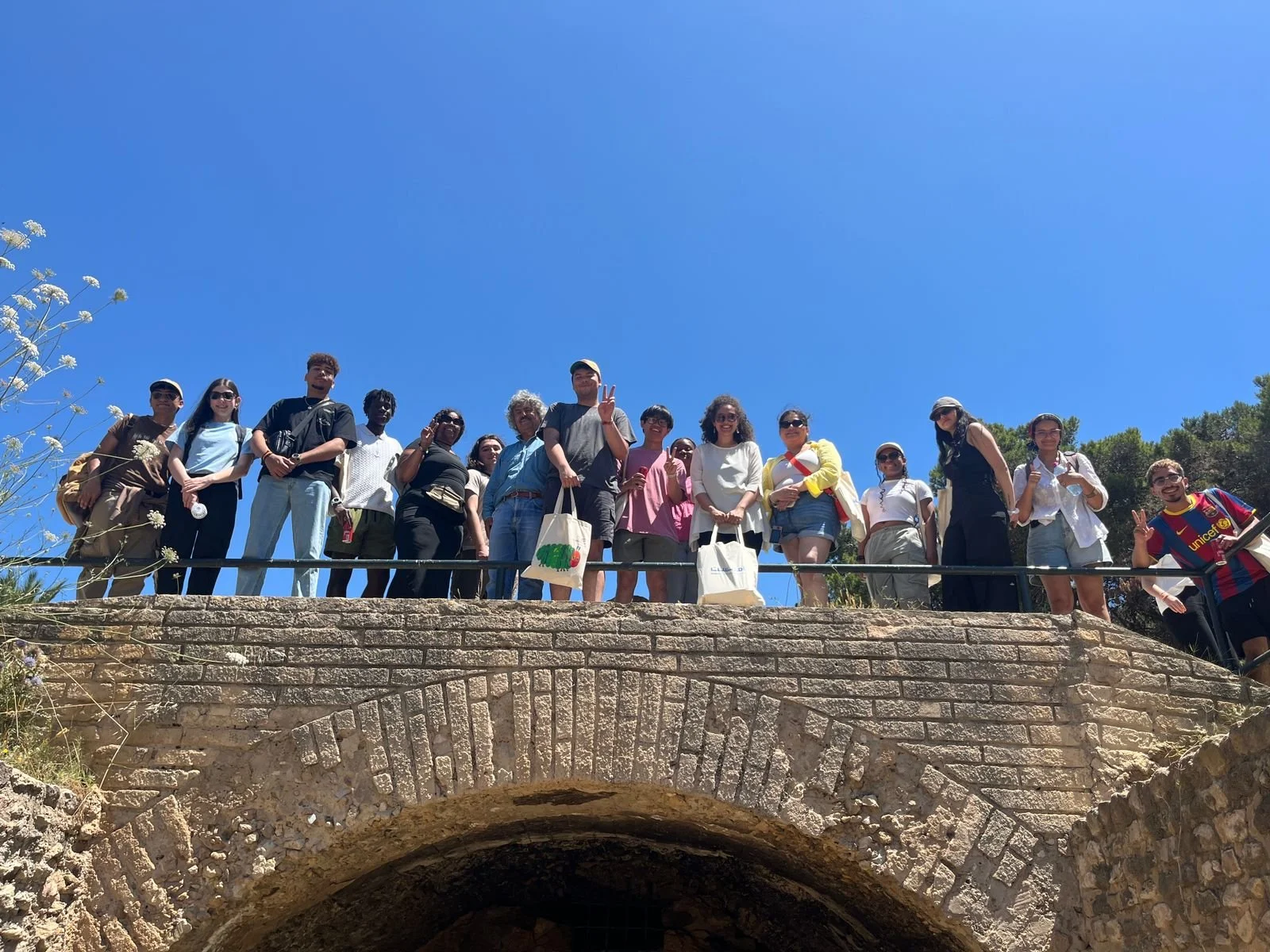
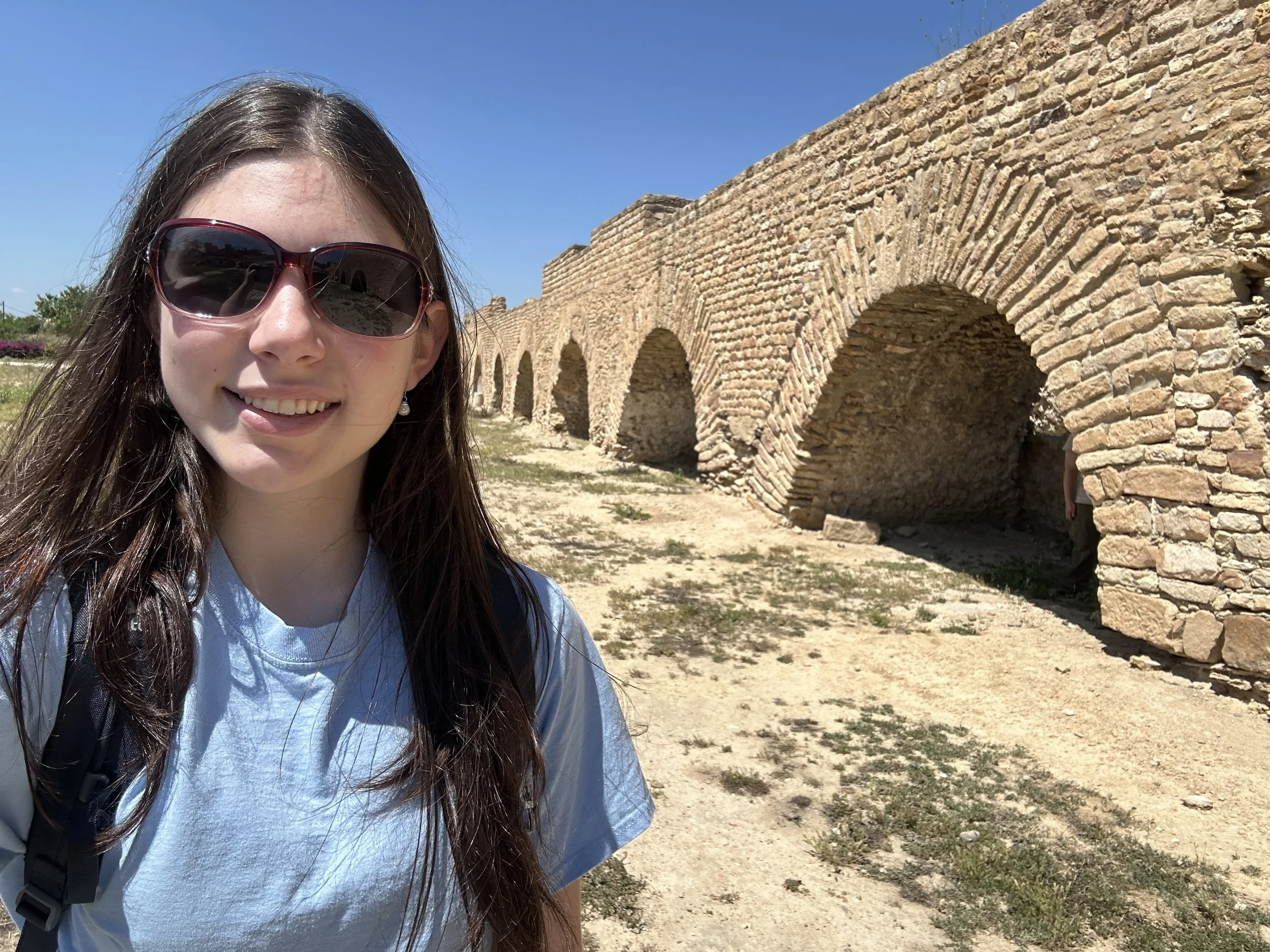
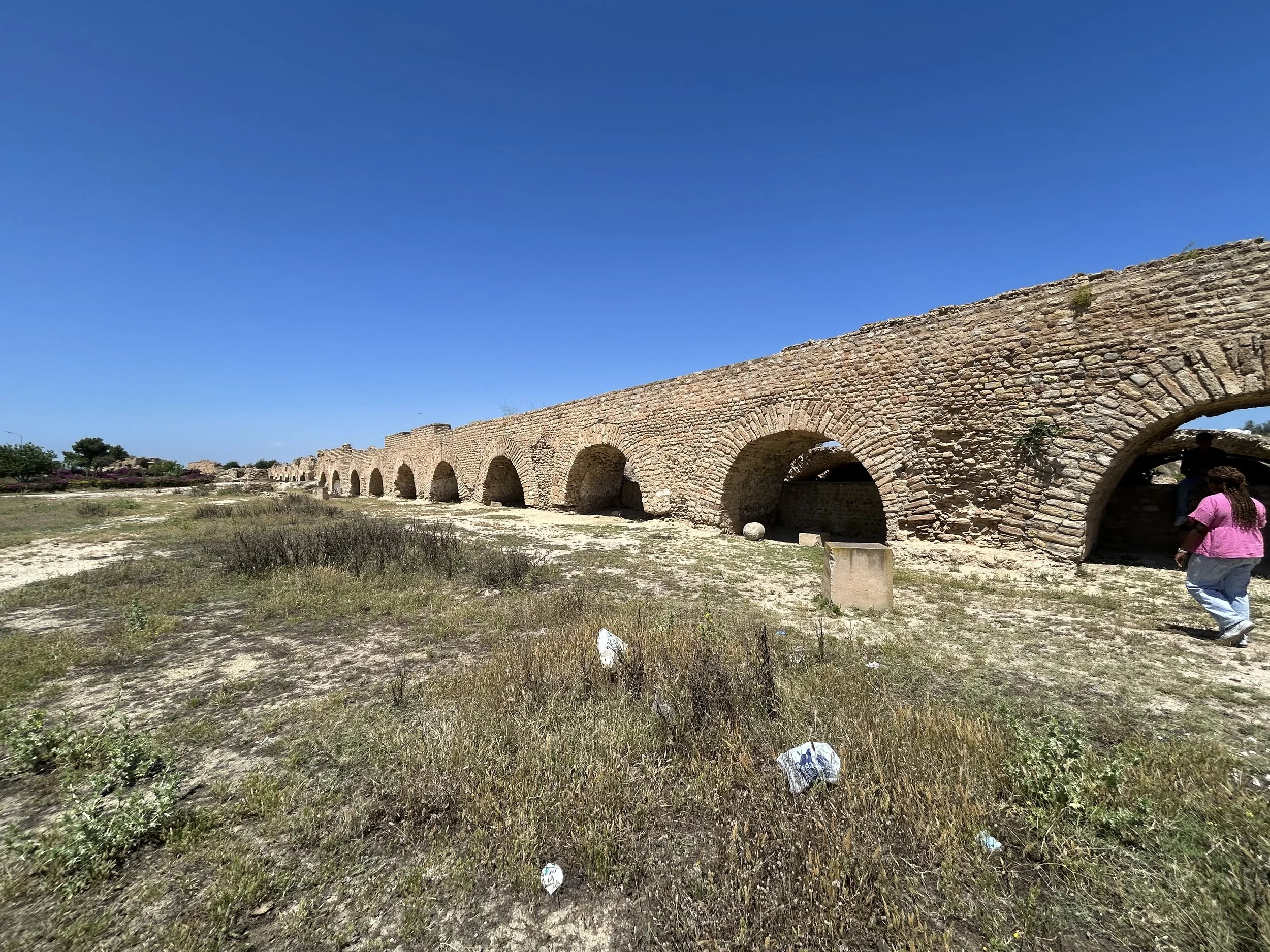
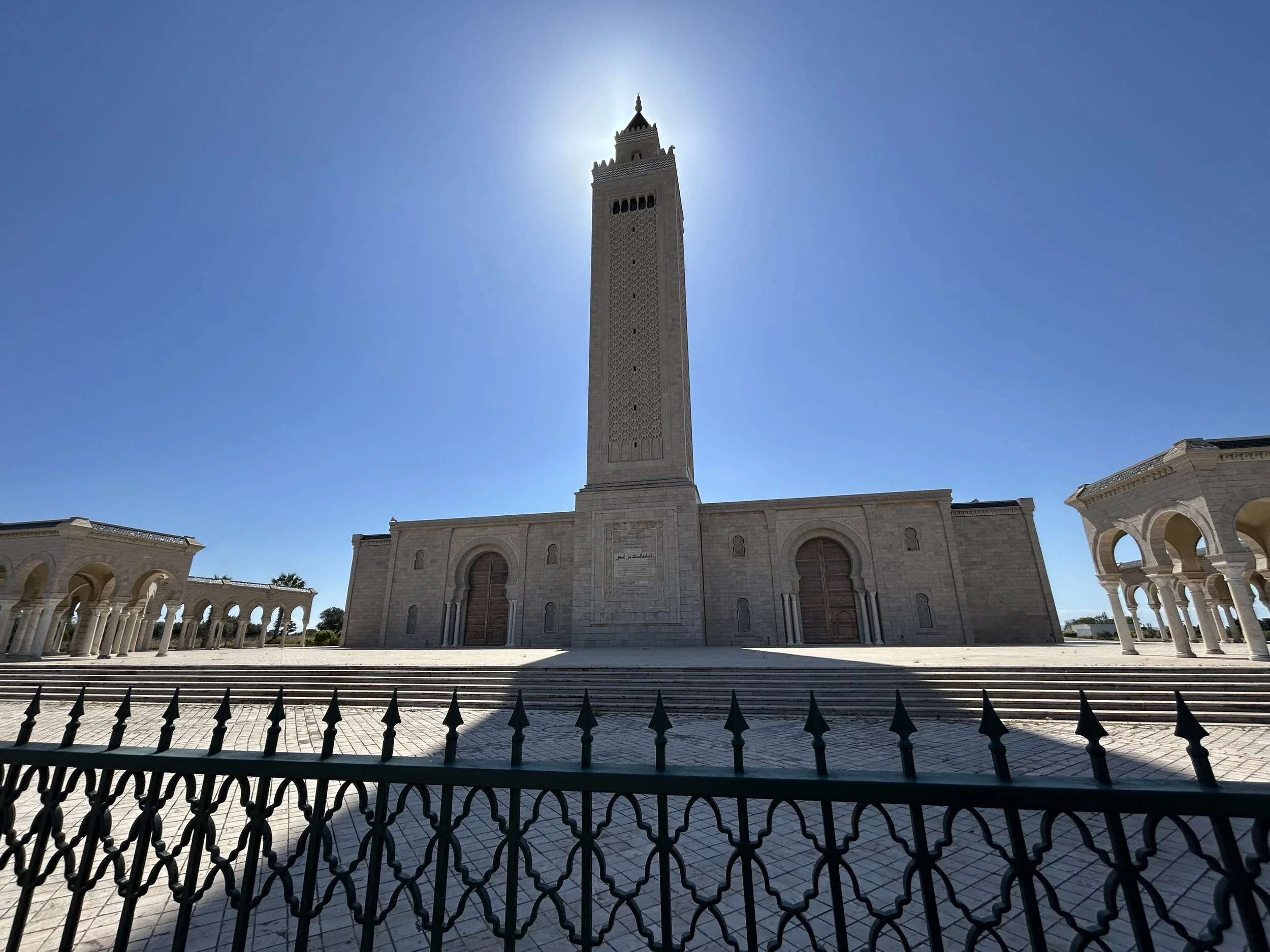
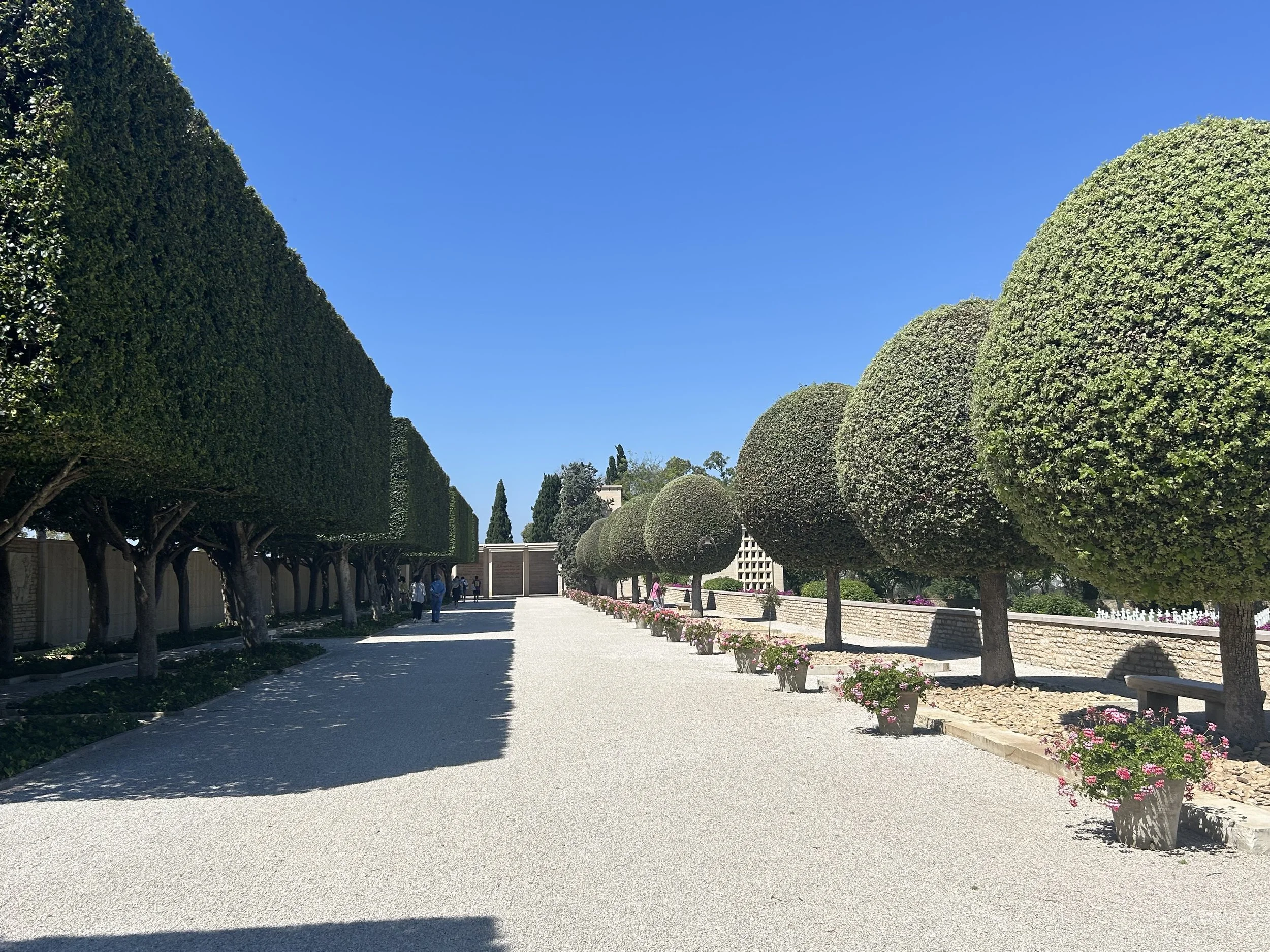
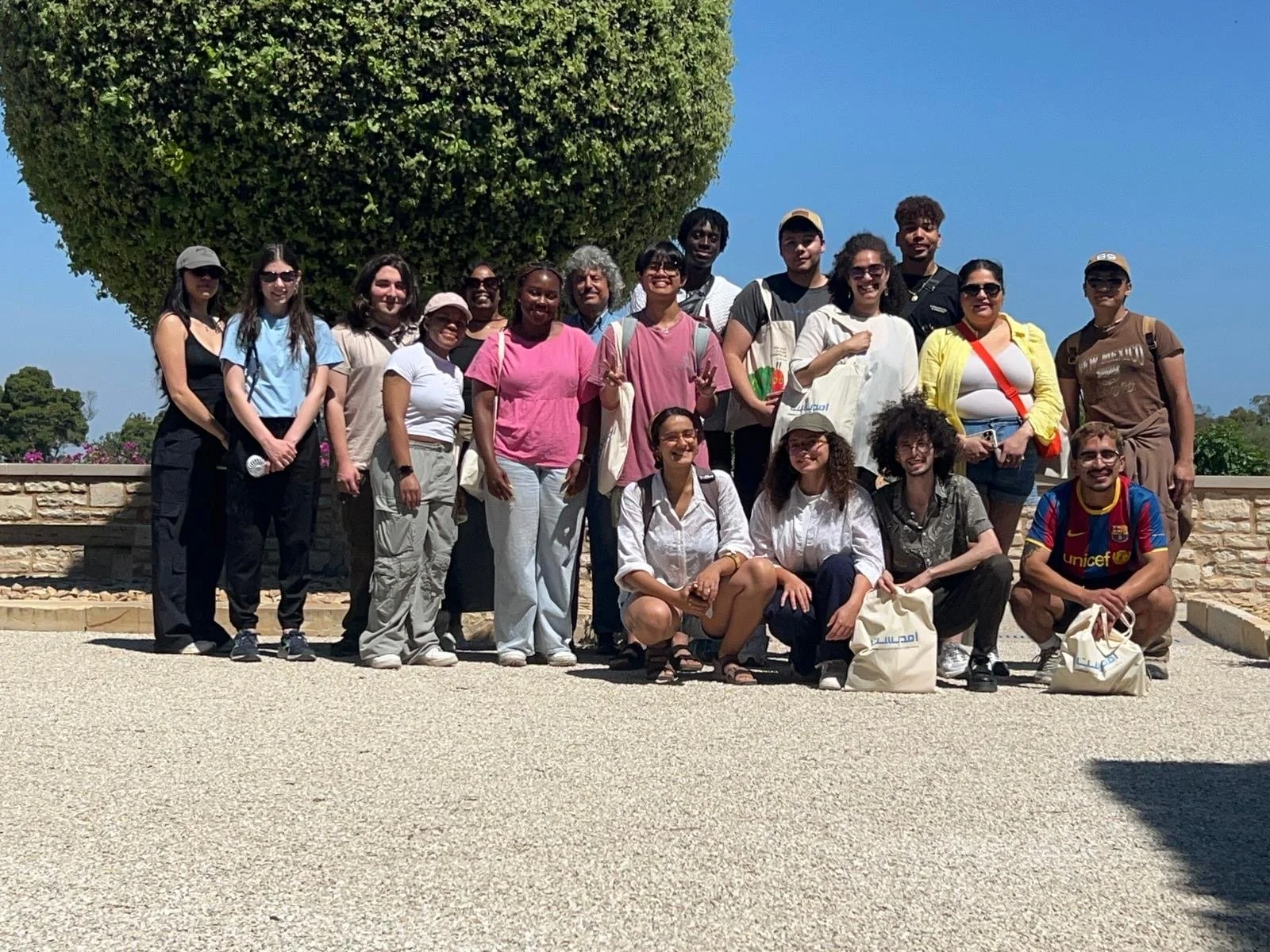
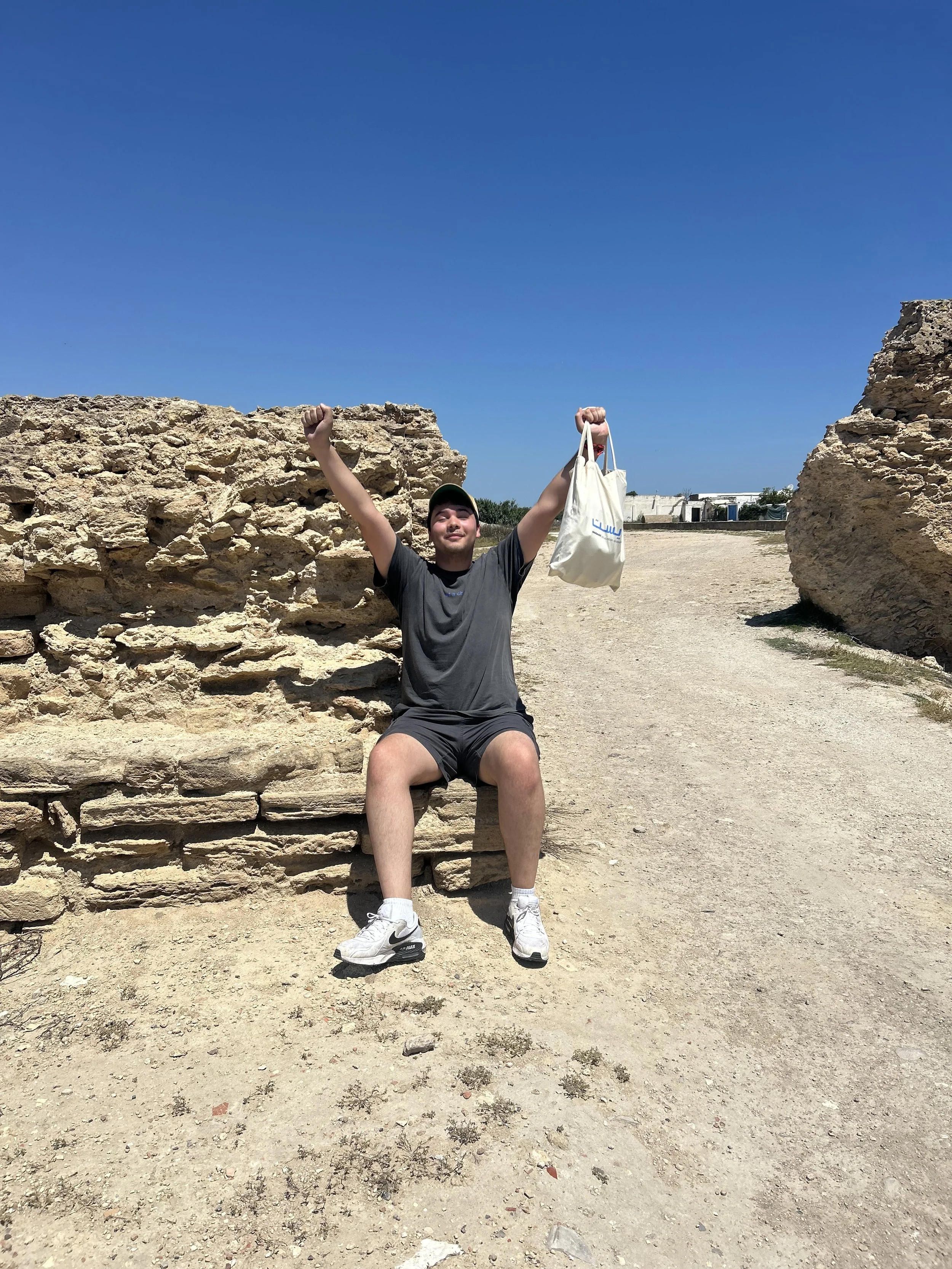
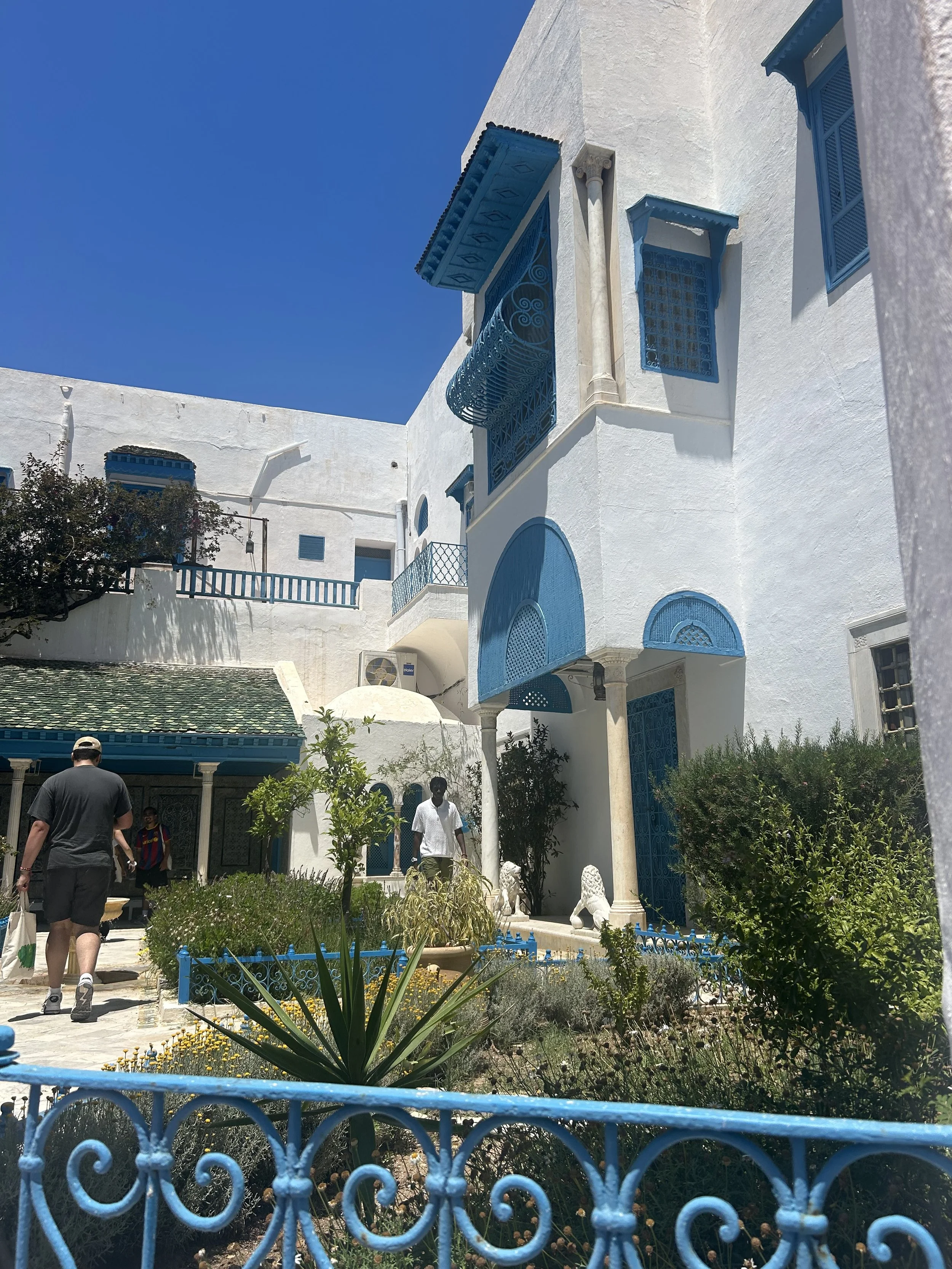
After introducing ourselves to our Tunisian peers, Zeineb, Amen, and Mayssem at breakfast, we kicked off the trip with a visit to the ruins at Carthage. I was pleasantly surprised that the remains of an ancient Roman city were scattered around modern roads, unguarded, and mostly free for guests to touch and walk through. Our tour guide, Hatem, told our group many interesting stories about the places that we visited, including aqueducts, cemeteries, and an amphitheater. There are typically locals trying to sell souvenirs outside of these locations. In the words of our peers, here comes travel tip #2: do not buy from them! The cheapest place to shop for souvenirs is the Medina, which we would visit in the coming days.
-
be sure to learn basic phrases and numbers in French and/or Arabic before you go.
-
do not buy from [the vendors at the tourist sites]! The cheapest place to shop for souvenirs is the Medina.
-
try the bambolouni!
-
do not be afraid to ask the tour guide as many questions as you would like!
-
do not be afraid to try new foods during your time abroad!
-
do not be afraid to haggle with salespeople in the Medina. Feel free to ask your peers or Amideast staff any questions you may have about bartering - they will be more than happy to help!
Day 2 also featured a visit to the famed blue-and-white Sidi Bou Said, a city on the Mediterranean with spectacular views and opportunities to connect with Tunisian culture. After a walk through the city, we ate our first group lunch in Sidi Bou Said, where I introduced myself to my fellow travelers. After lunch, our group leader, Sahar, took us to a shop in Sidi Bou Said known for its bambolouni, a Tunisian sugar donut. It was so delicious that a few students went as a group to get bambolouni every night for the rest of the program. Travel tip #3: try the bambolouni!
After spending the morning in Sidi Bou Said, we headed to the Amideast headquarters where we had an insightful discussion with Adnen El Ghali, an architecture research fellow, on heritage and cultural preservation. The discussion was more of a presentation at first, then several members of our group jumped in the conversation to share their own perspectives.
That evening, I went out with 4 other groupmates to a shawarma restaurant called Tunisia Chicken which was about a 5-minute walk from the hotel. Tunisia Chicken became a favorite spot for dinner throughout the program. :)
Day 3 (Saturday, May 31):
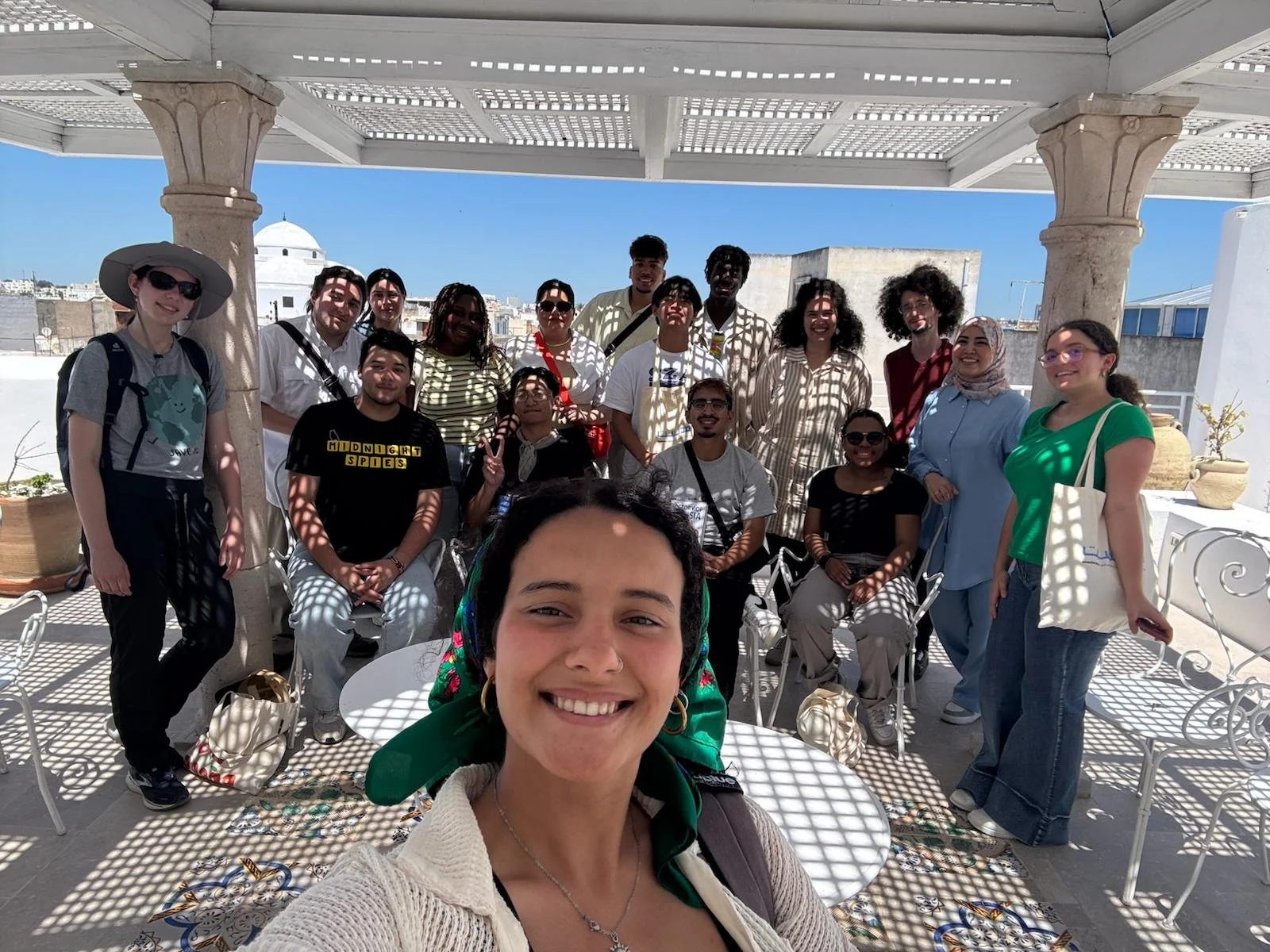
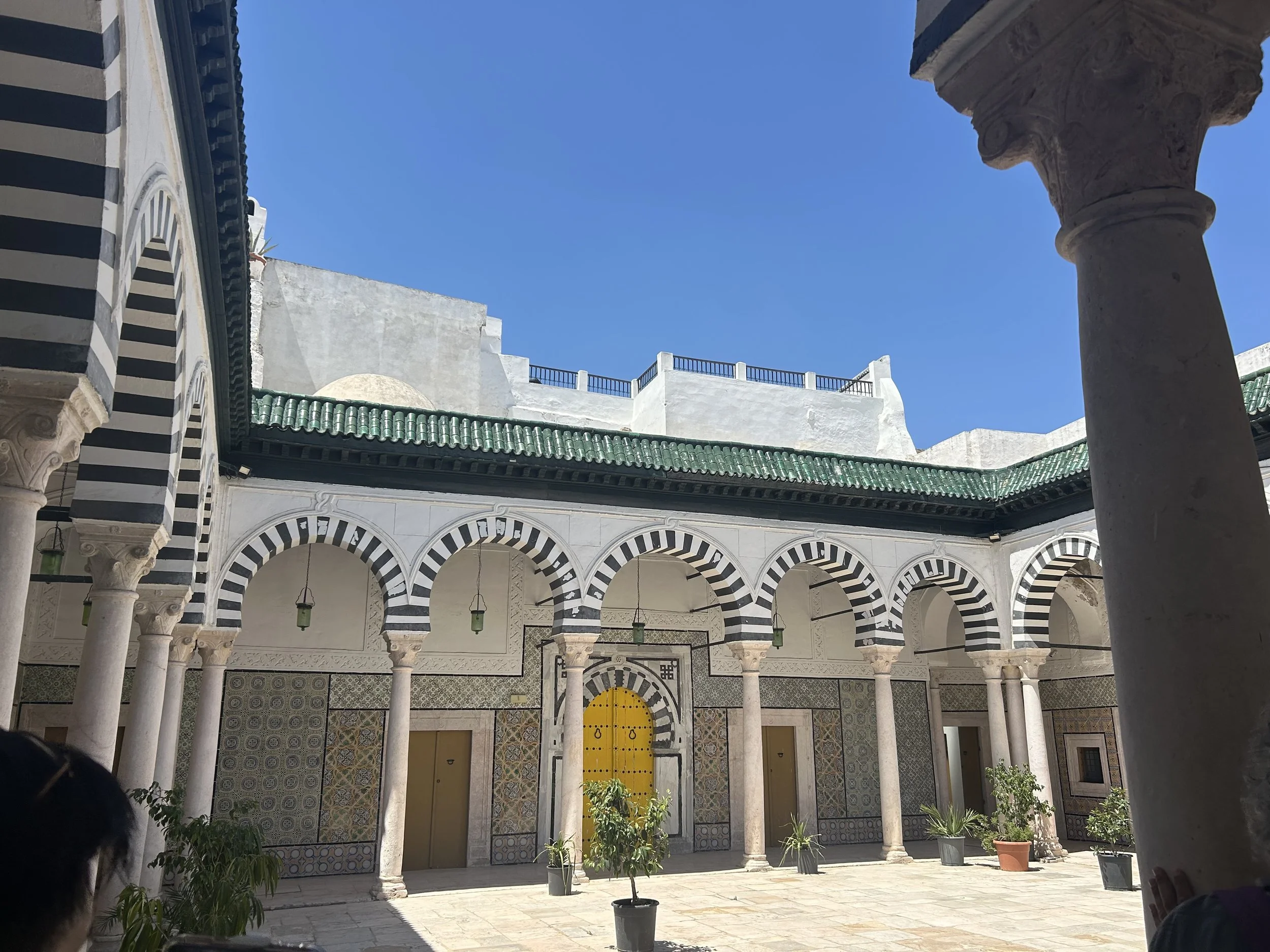
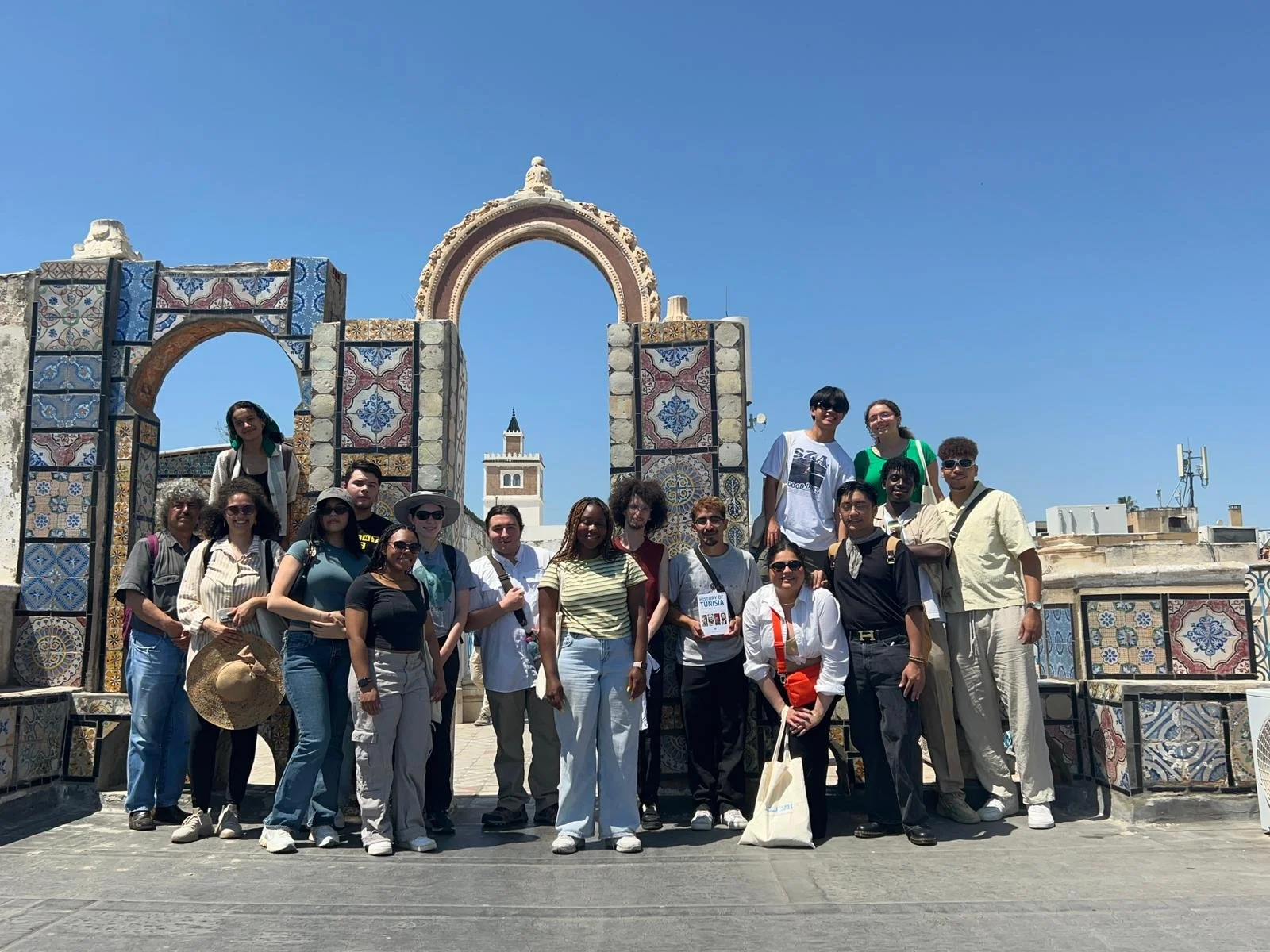
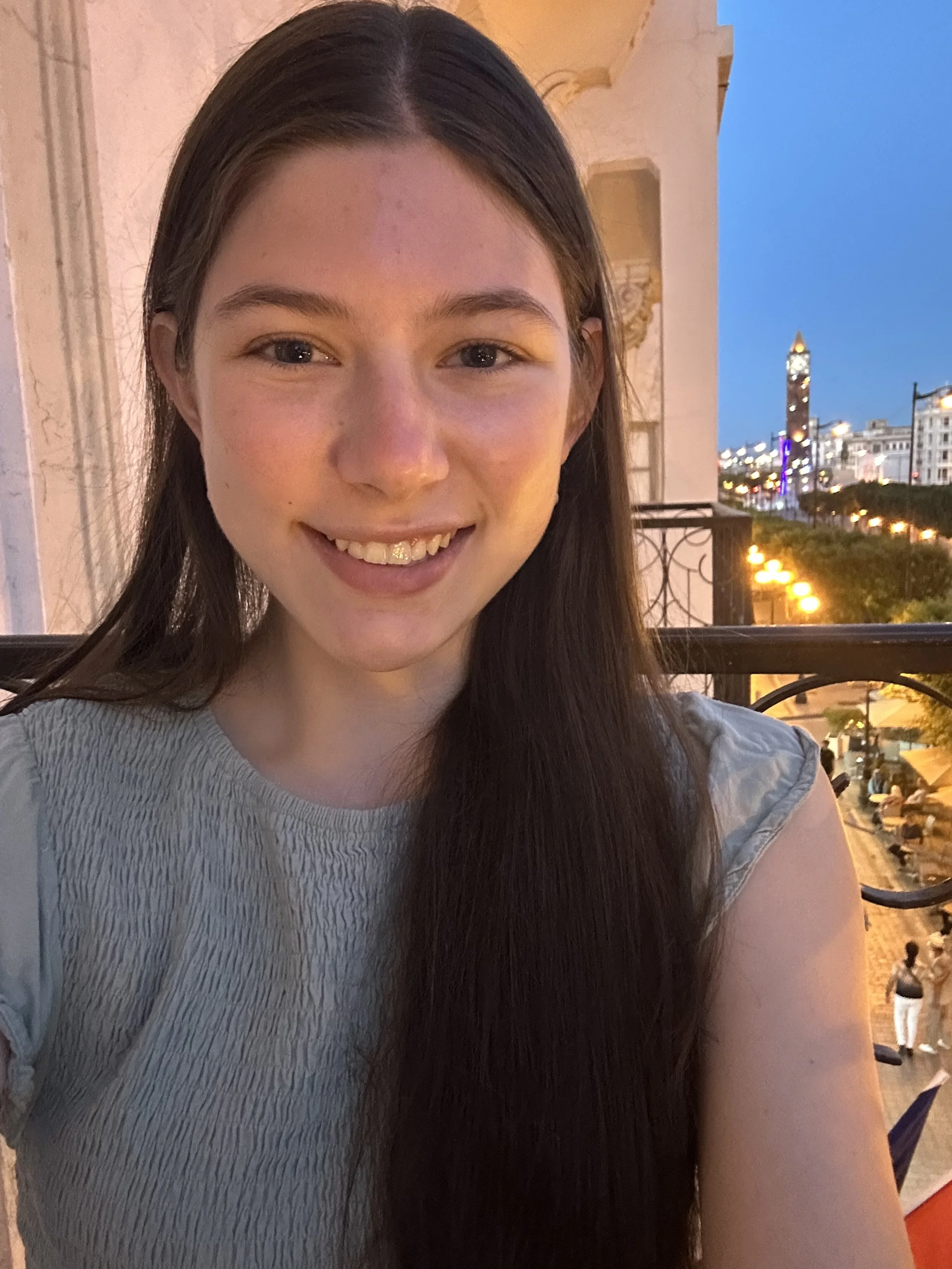
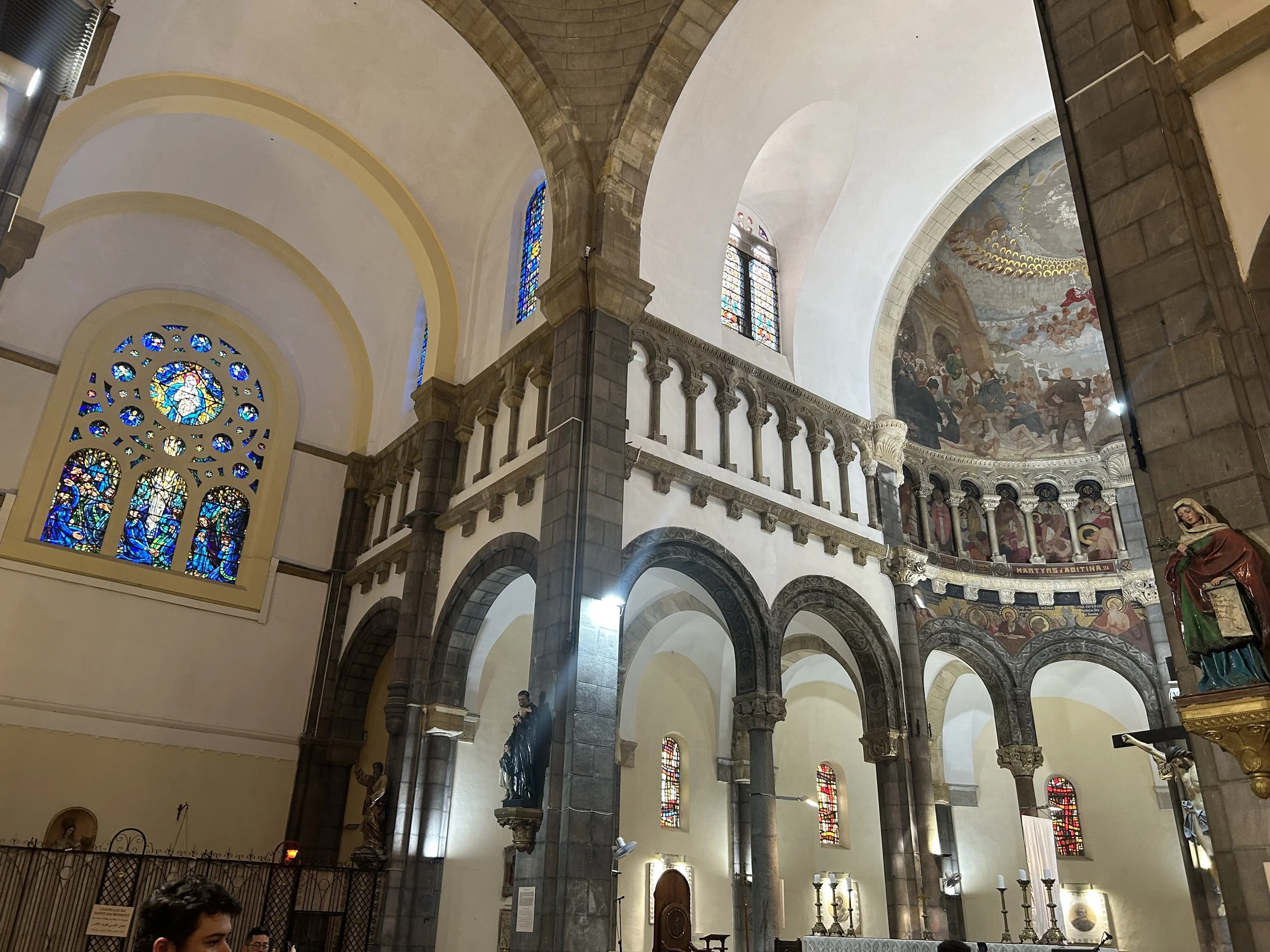
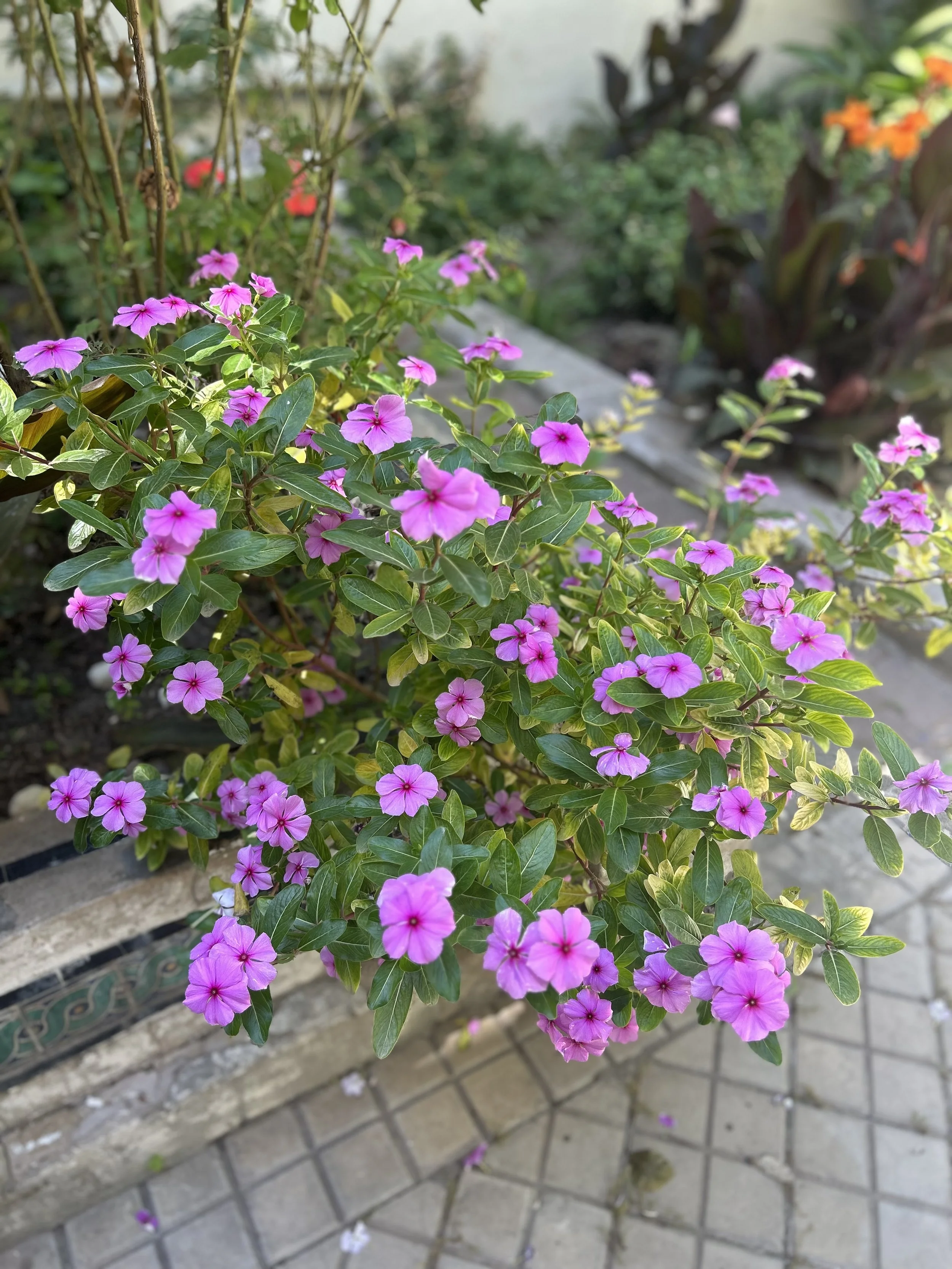
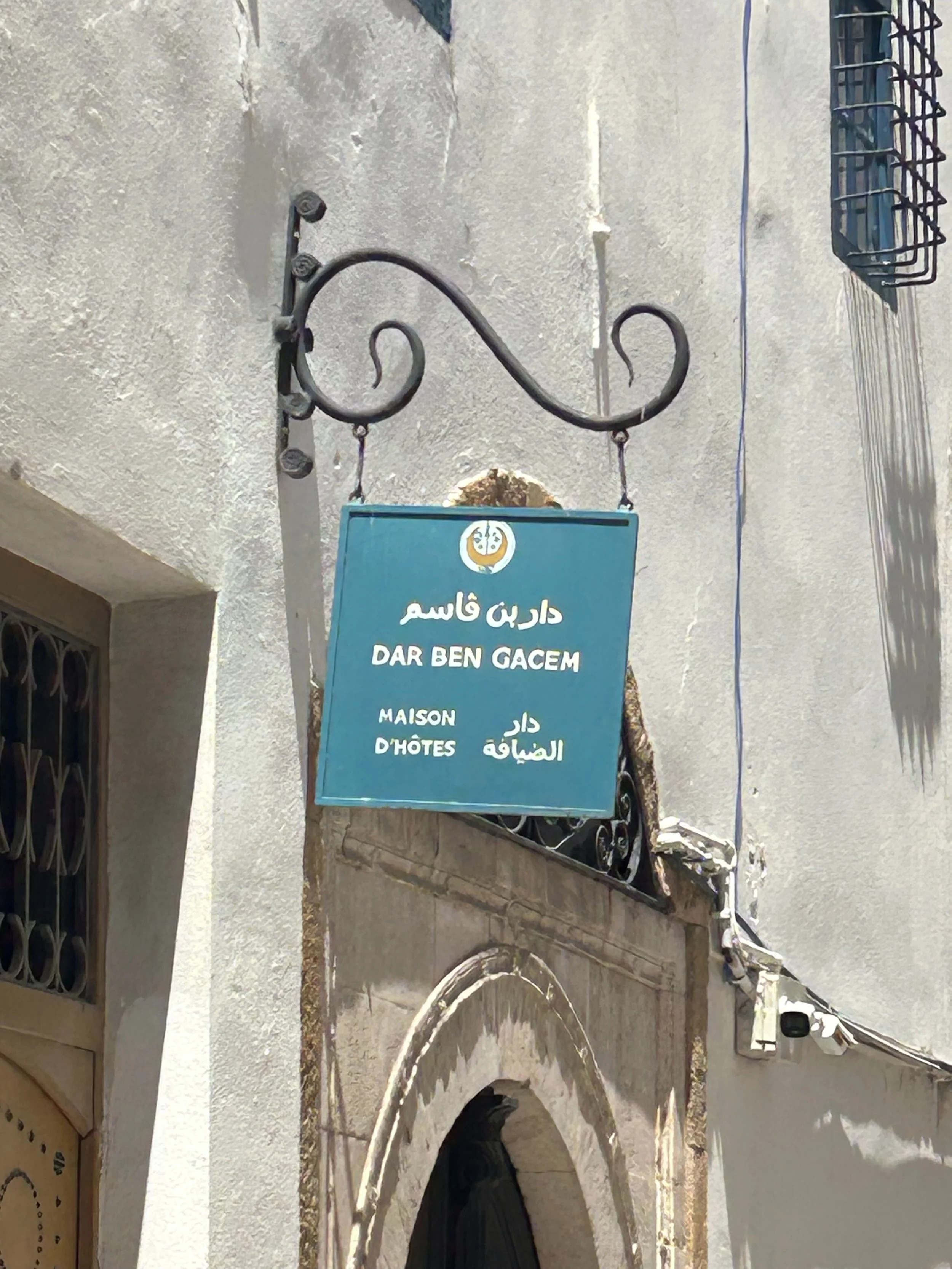
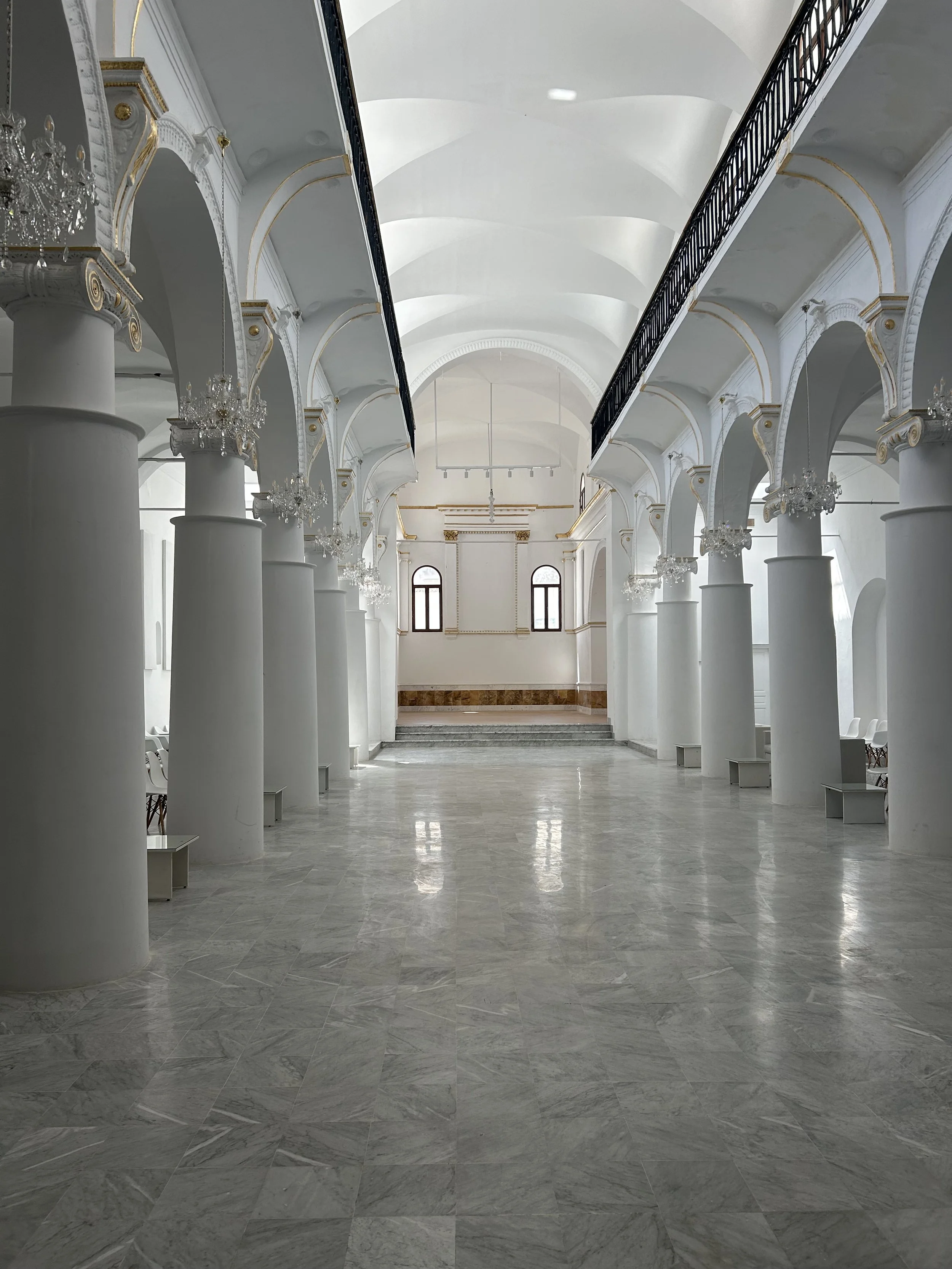
Looking back, day 3 was one of my favorite days of the CASE program - that is because I had my first opportunity to explore the Medina of Tunis, which would become my favorite spot in Tunis. After a 2-hour tour led by Hatem, in which our group explored a variety of historical sites and tasted Tunisian desserts, we headed to the centuries-old house turned social entrepreneurship project Dar Ben-Gacem. Founded by Leila Ben-Gacem, Dar Ben-Gacem is a guesthouse nestled in the Medina that aims to provide guests with a traditional Tunisian experience. Madame Ben-Gacem shared with us her experience founding and operating Dar Ben-Gacem in the second themed discussion of the program: social entrepreneurship. We were then served a lunch of couscous, a traditional Tunisian dish featuring meat and vegetables in a bowl of the namesake grain. Following lunch, I had the pleasure of meeting a few other social entrepreneurs and volunteering at Blue Fish, a garden and social entrepreneurship project in the Medina which provides a resting space for women and children with opportunities to learn practical skills.
Day 4 (Sunday, June 1):
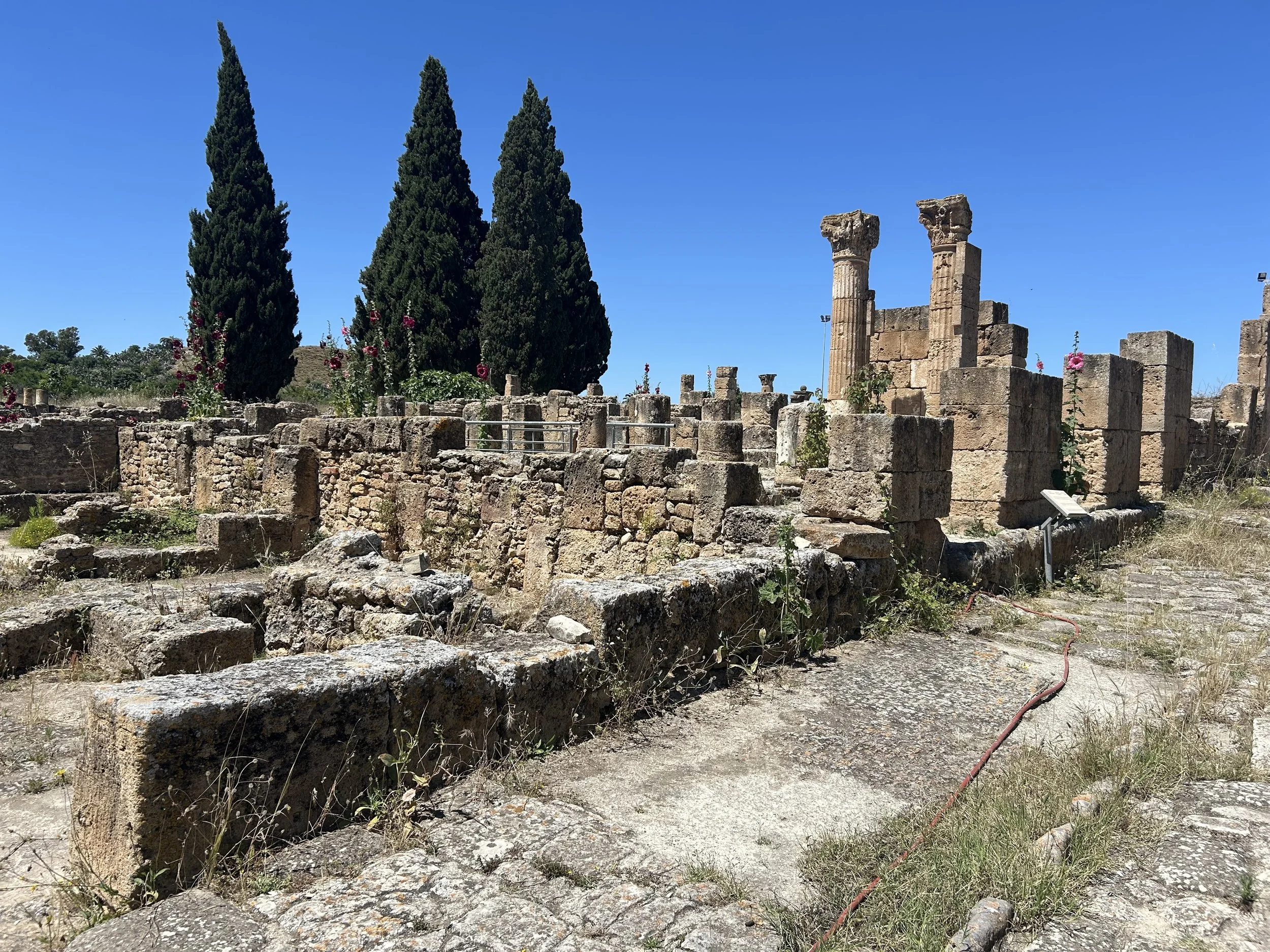
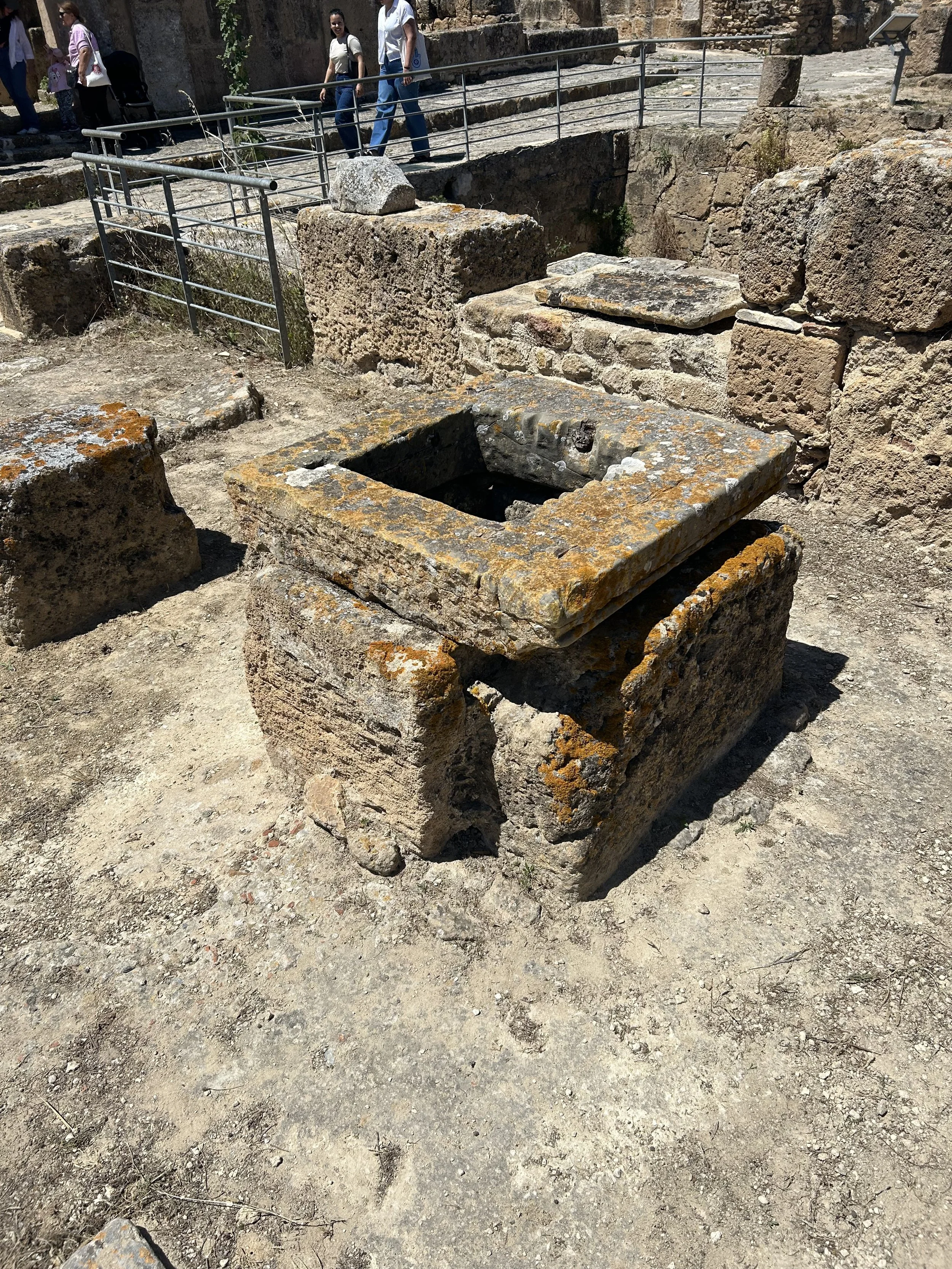
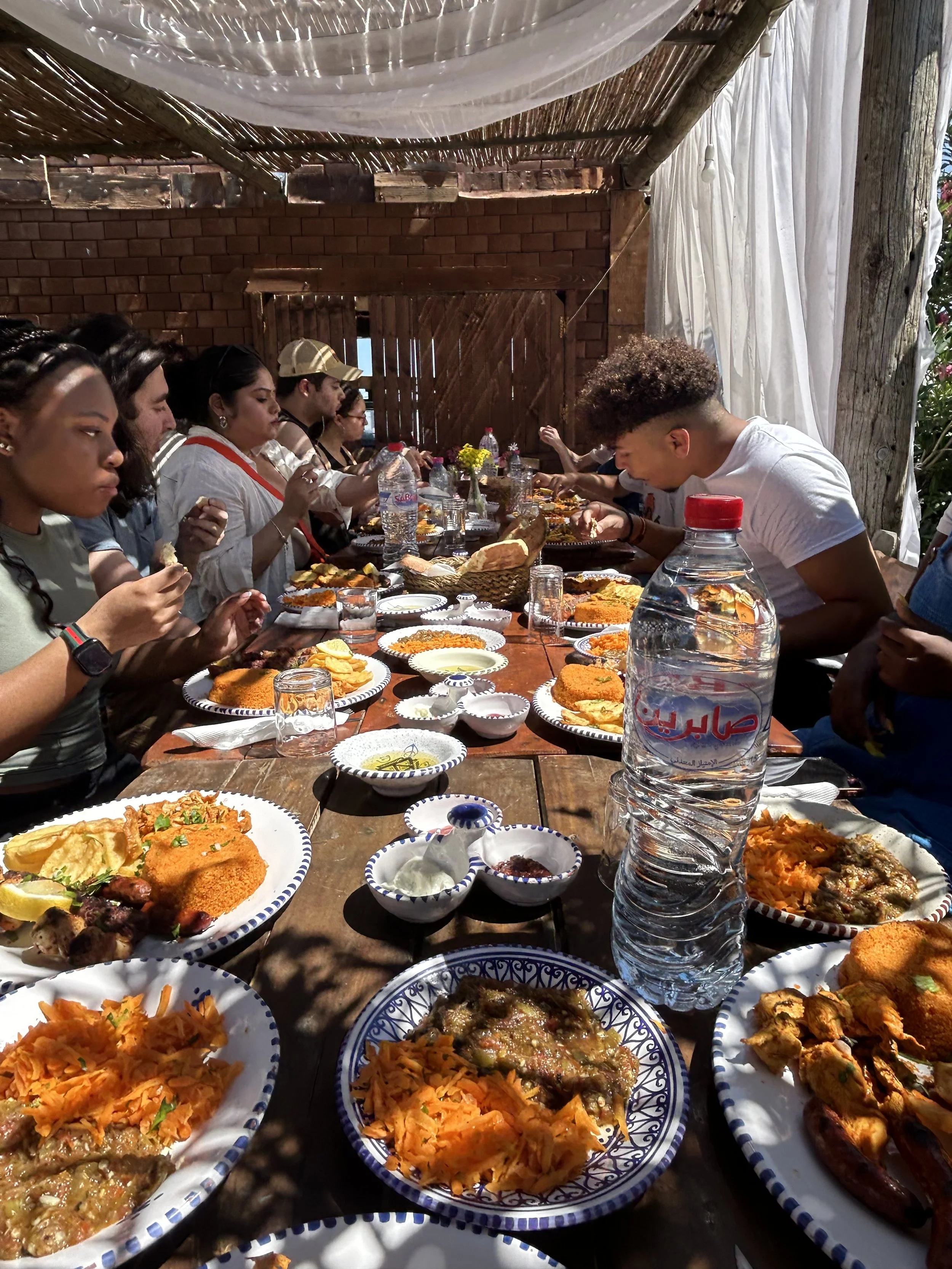
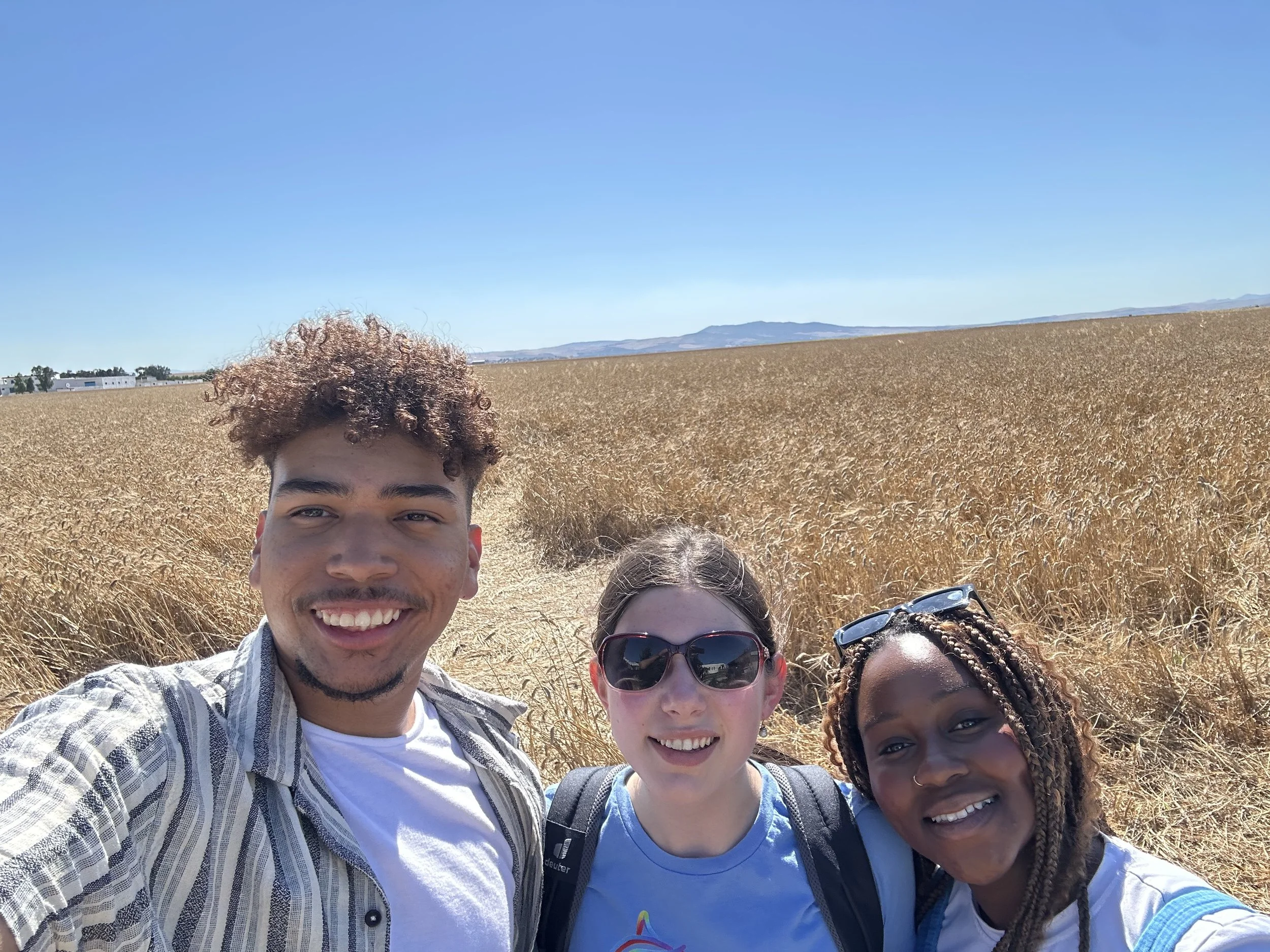
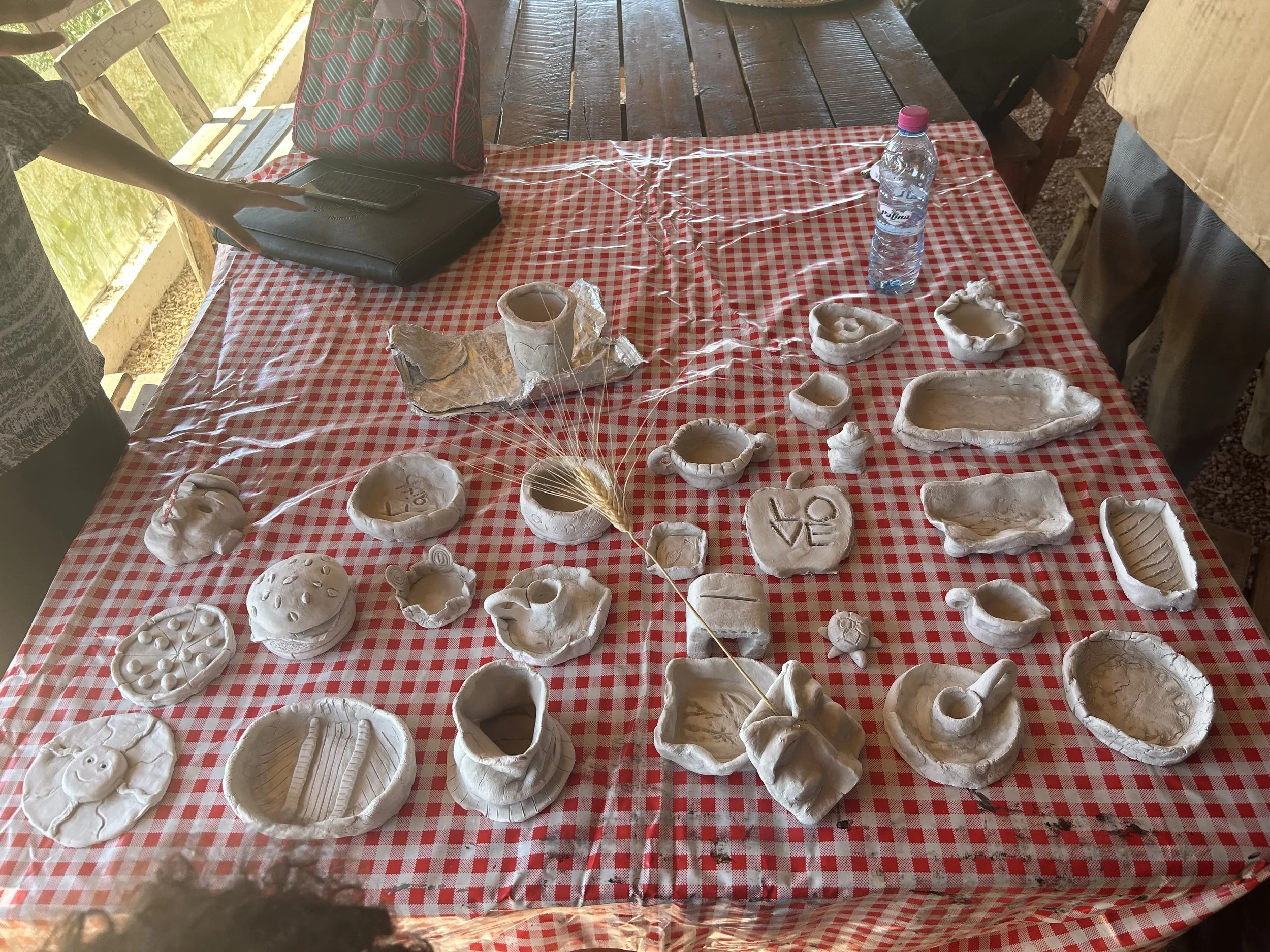
Much like day 2, day 4 began with a tour of the ancient city of Utique. Once a coastal city, river deposition now places Utique 10 kilometers inland! I enjoyed exploring the outdoor ruins, and I was pleasantly surprised to see how much of the city was preserved after thousands of years, including a mosaic of Neptune on the ground which was nearly intact! I was immediately captivated by the handiwork of this mural, and Hatem happily answered all of my questions about it, which leads me to travel tip #4: do not be afraid to ask the tour guide as many questions as you would like! They are there to spark your interest in Tunisian culture and history.
After touring Utique, we headed to an eco farm outside of Tunis called Tresor d’Utique. It was there I had one of the best meals I had the entire trip! Once again, couscous was served, but this time alongside chicken and beef skewers, fried potatoes, and warm, fluffy bread. After lunch and a pottery community service activity, we headed back to the hotel.
Day 5 (Monday, June 2):
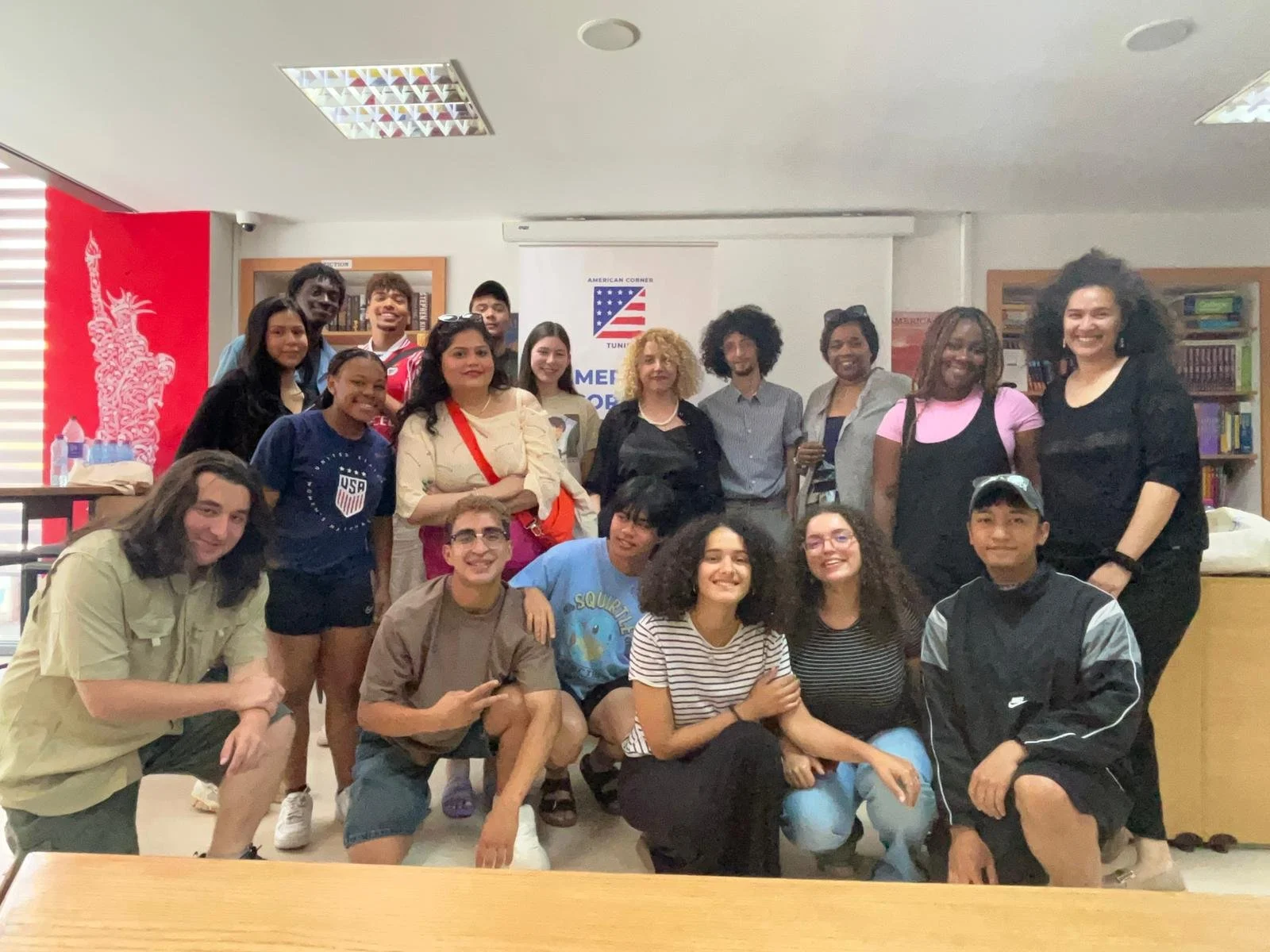
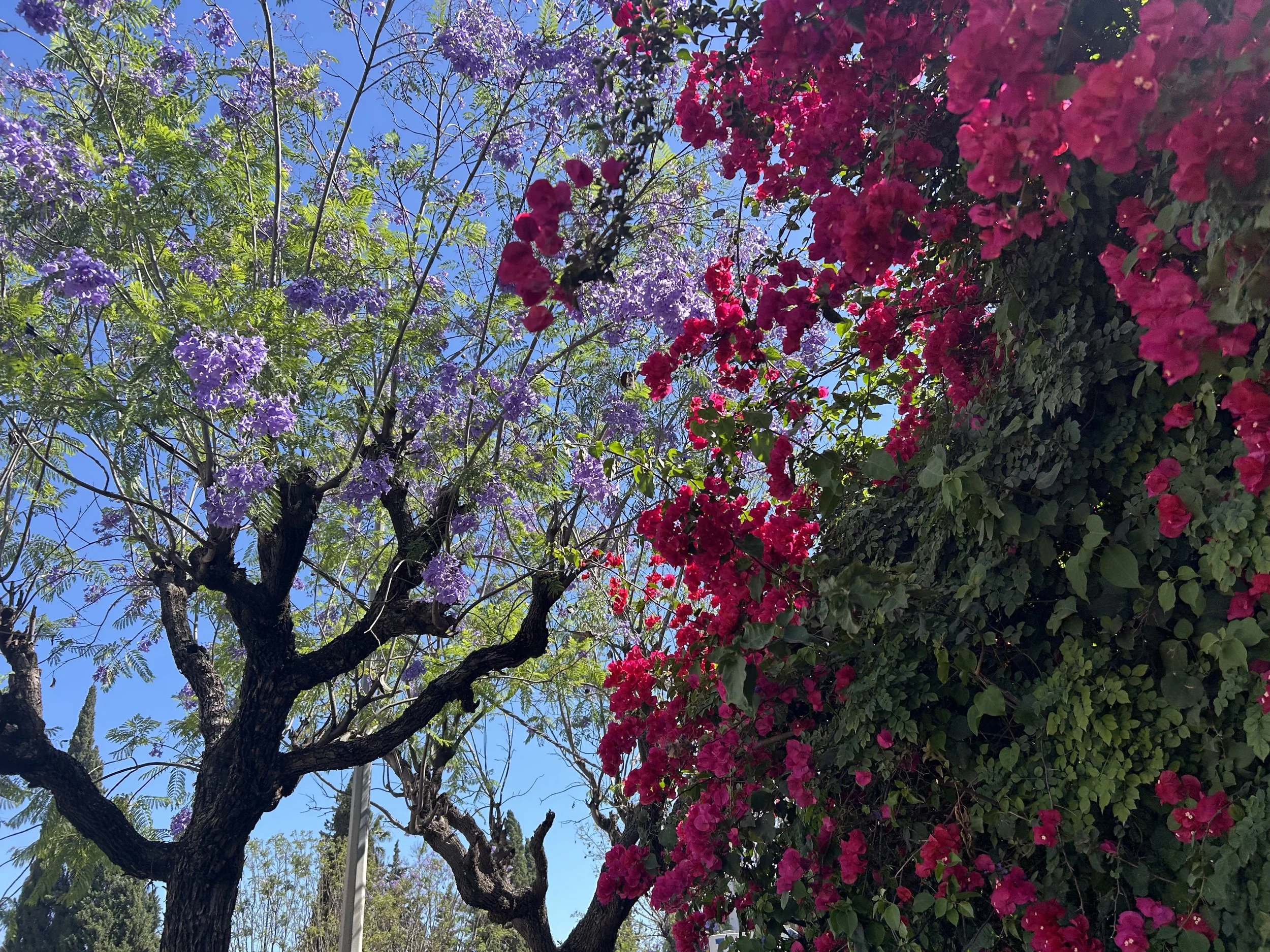
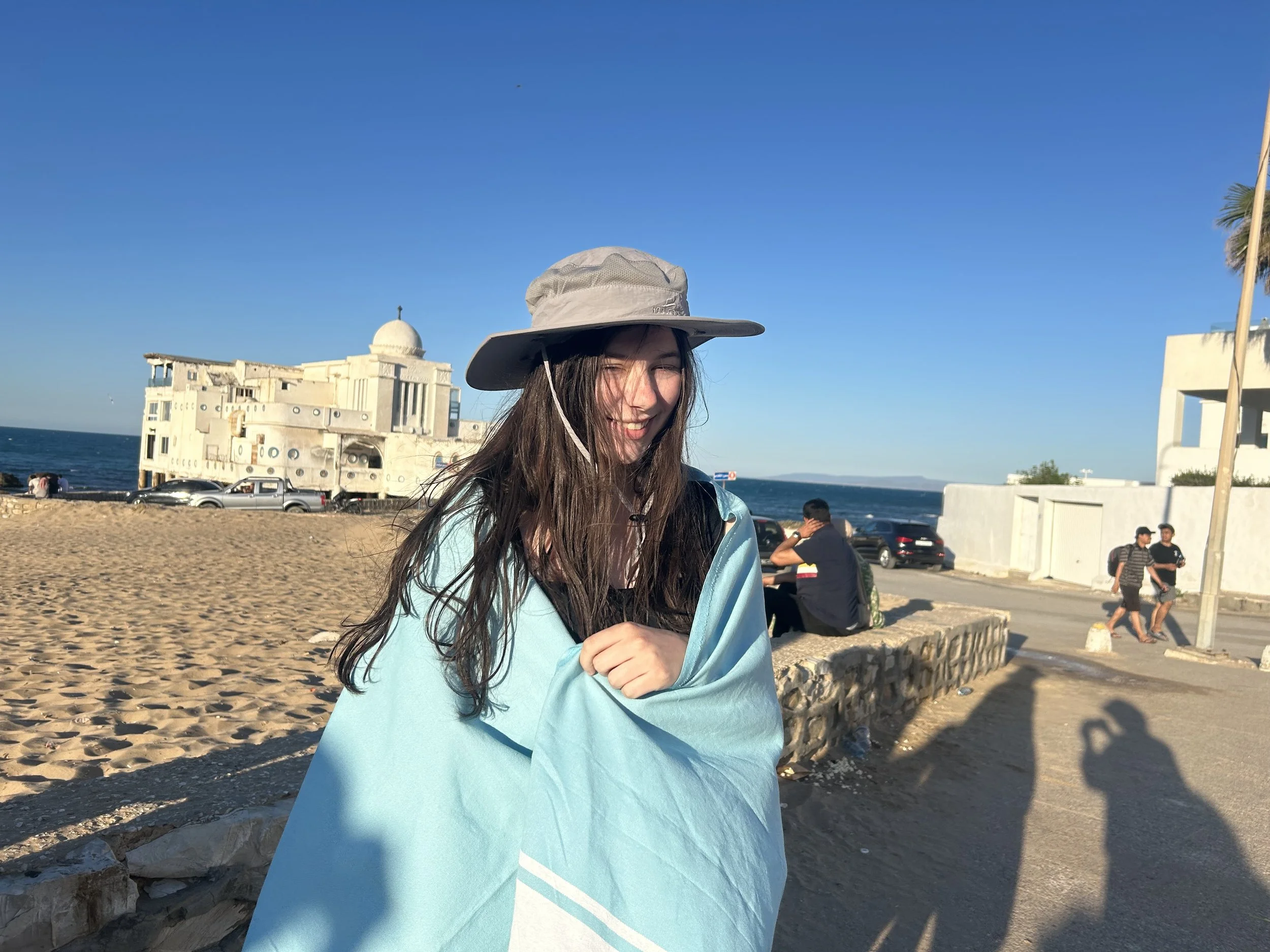
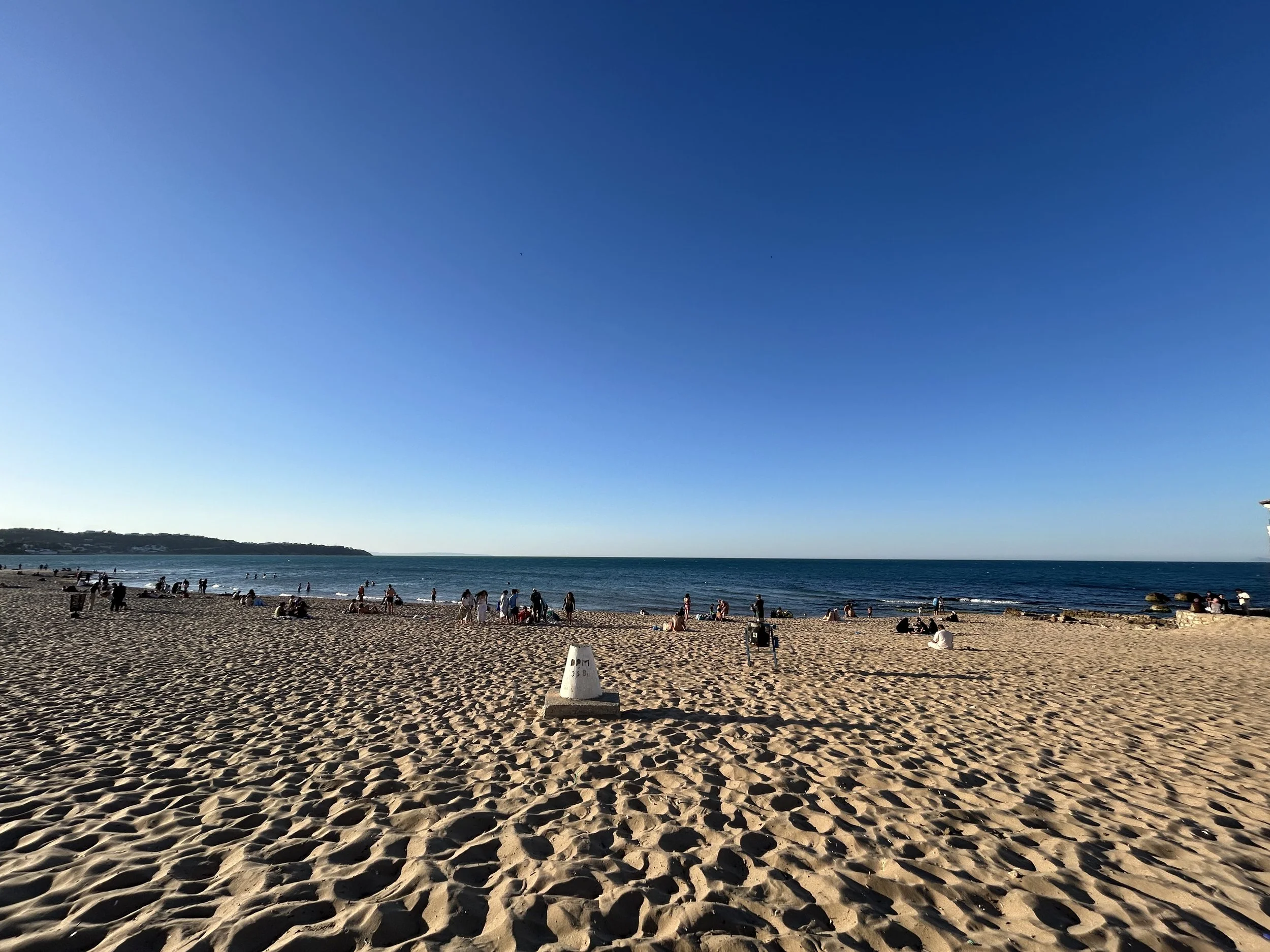
On Monday morning, we discussed my favorite theme area of the program: feminism. Another insightful discussion was brought to us by activist and cross cultural studies scholar Dora Bouslah who helped me adopt a new perspective as I learned about Tunisian feminism. This discussion allowed many of us participants to connect with the topic on a personal level, and it allowed me to view American feminism through a broader lens. I exchanged contact information with the speaker and continue to ask her questions after the program.
That afternoon, our group picked up trash on the beach of La Marsa before relaxing and swimming. While the water was cold, it was incredibly clear! I have yet to see a beach as beautiful in the mainland US.
Day 6 (Tuesday, June 3):
Tuesday was all about food! We opened the day with another discussion with keynote speaker, Dr. Mouna Mechri who spoke with our group on sustainable farming practices in Tunisia. Following the discussion, the peers led us in a game show activity to provide hands-on experience learning about Tunisian food. We divided into three groups. Each round, the peers projected a picture onto a whiteboard of a Tunisian dish. From there, each of the three groups had to guess which ingredients might be in the dish and put a small amount of each ingredient on a plate. Though my group lost, I learned a lot about the flavors that make Tunisian cuisine so unique!
That afternoon, our group embarked on an adventure that was one of my favorite activities of the trip: a food tour of the Medina. Again, we broke into three groups, each led by a peer. Our peer, Amen, showed us several spots in the Medina where various foods from the game show activity could be found. I had fun tasting all of the different foods, and our group won this challenge. Travel tip #5: do not be afraid to try new foods during your time abroad!
Day 7 (Wednesday, June 4):
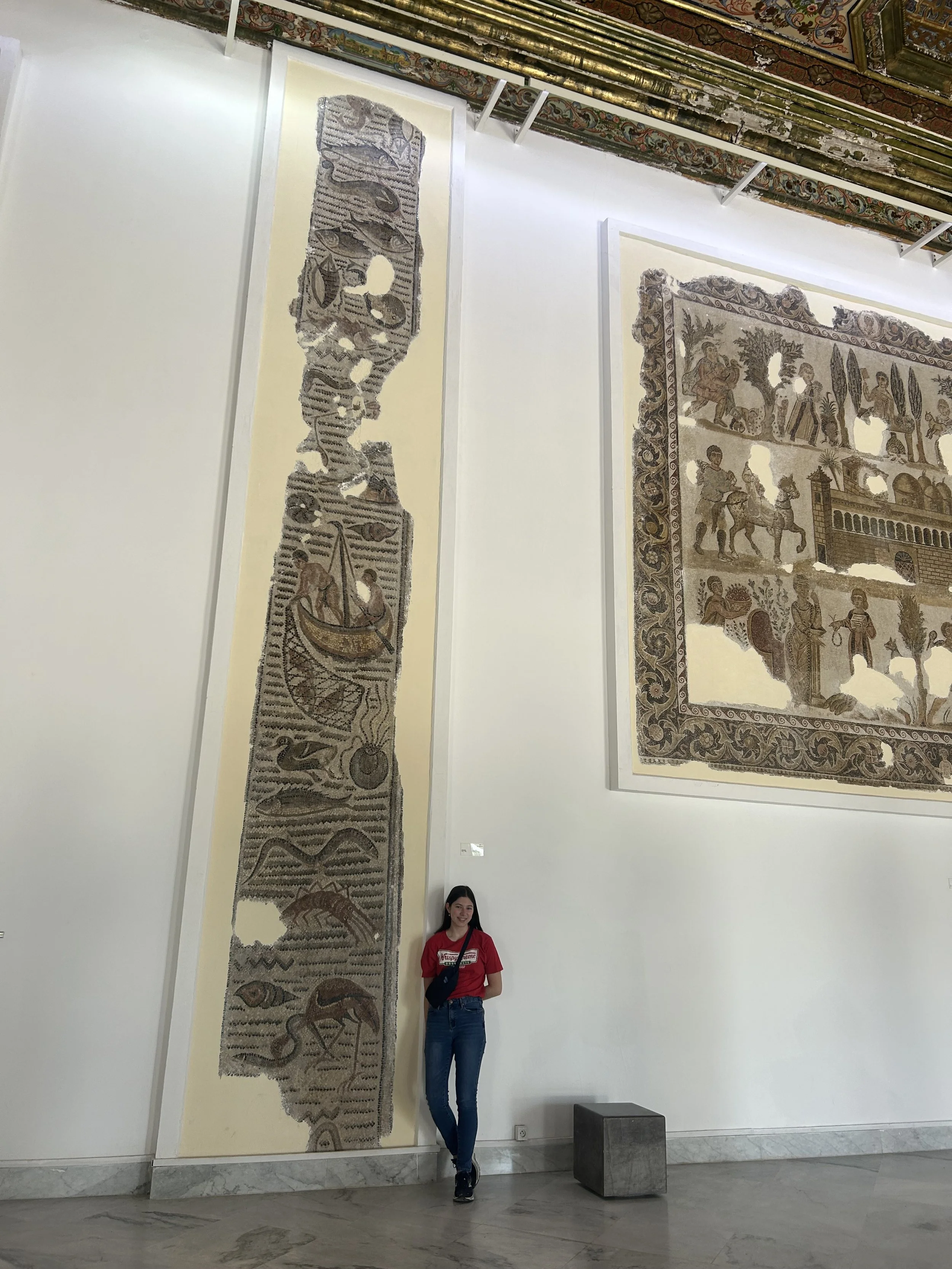
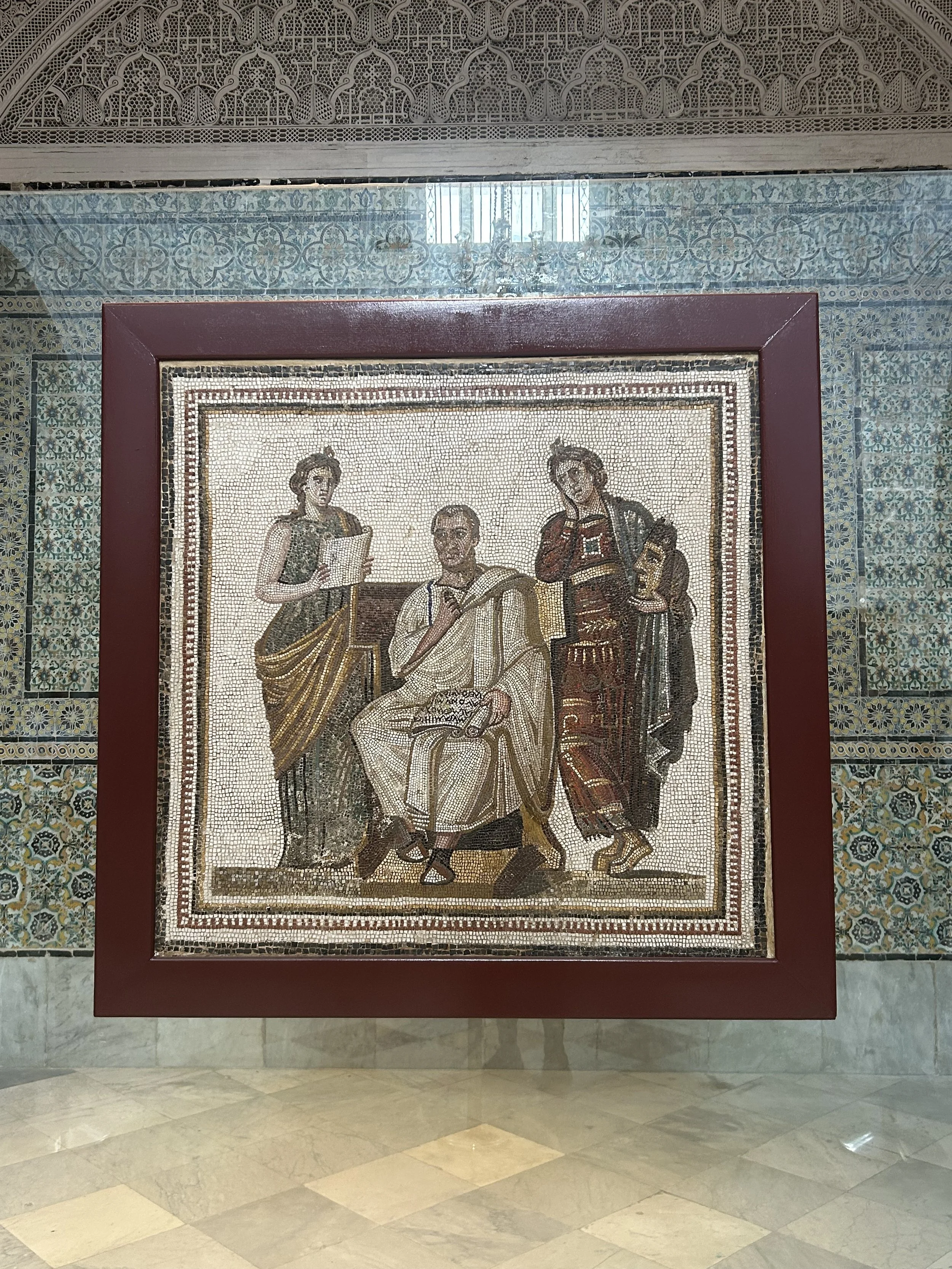
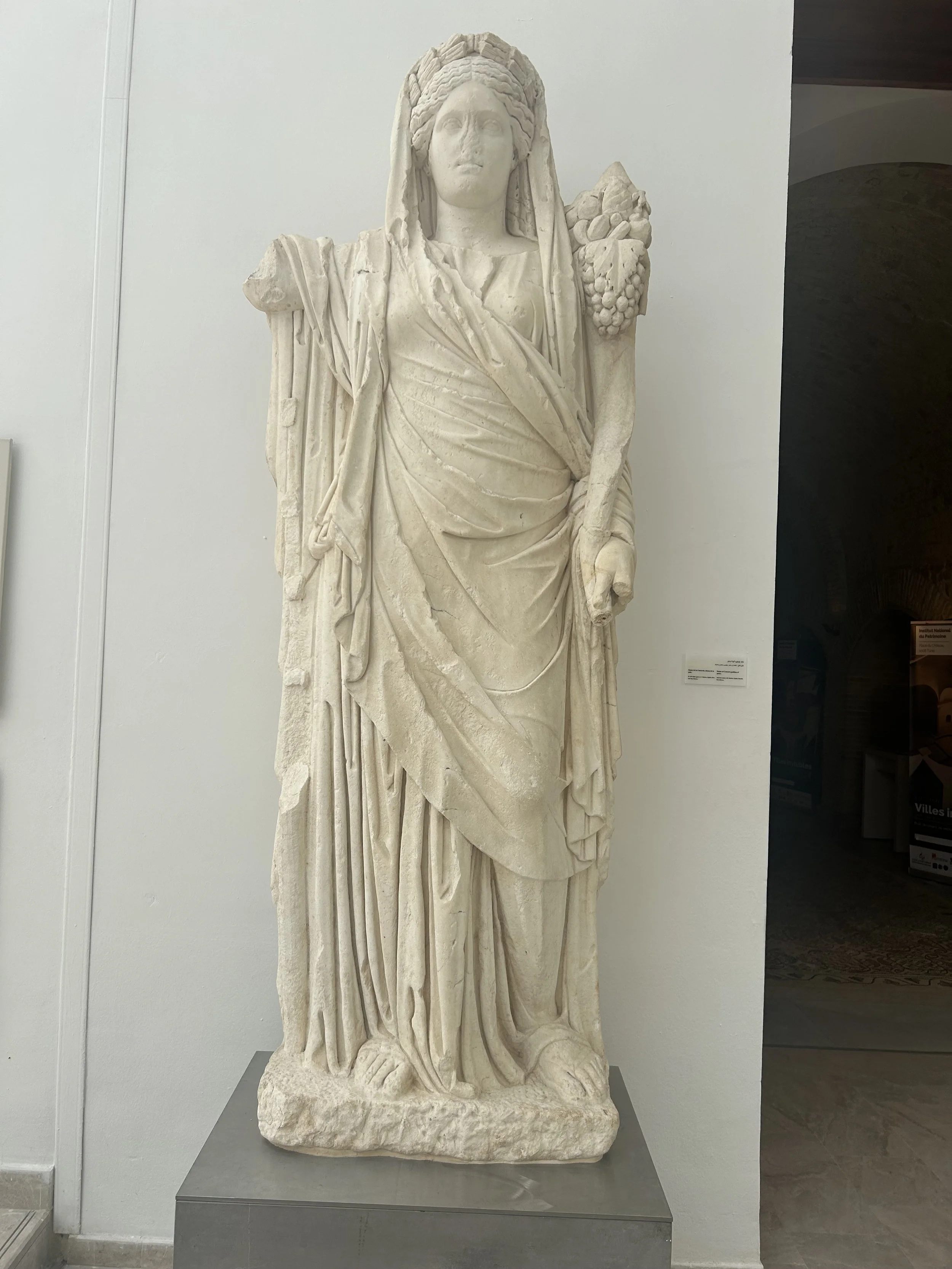
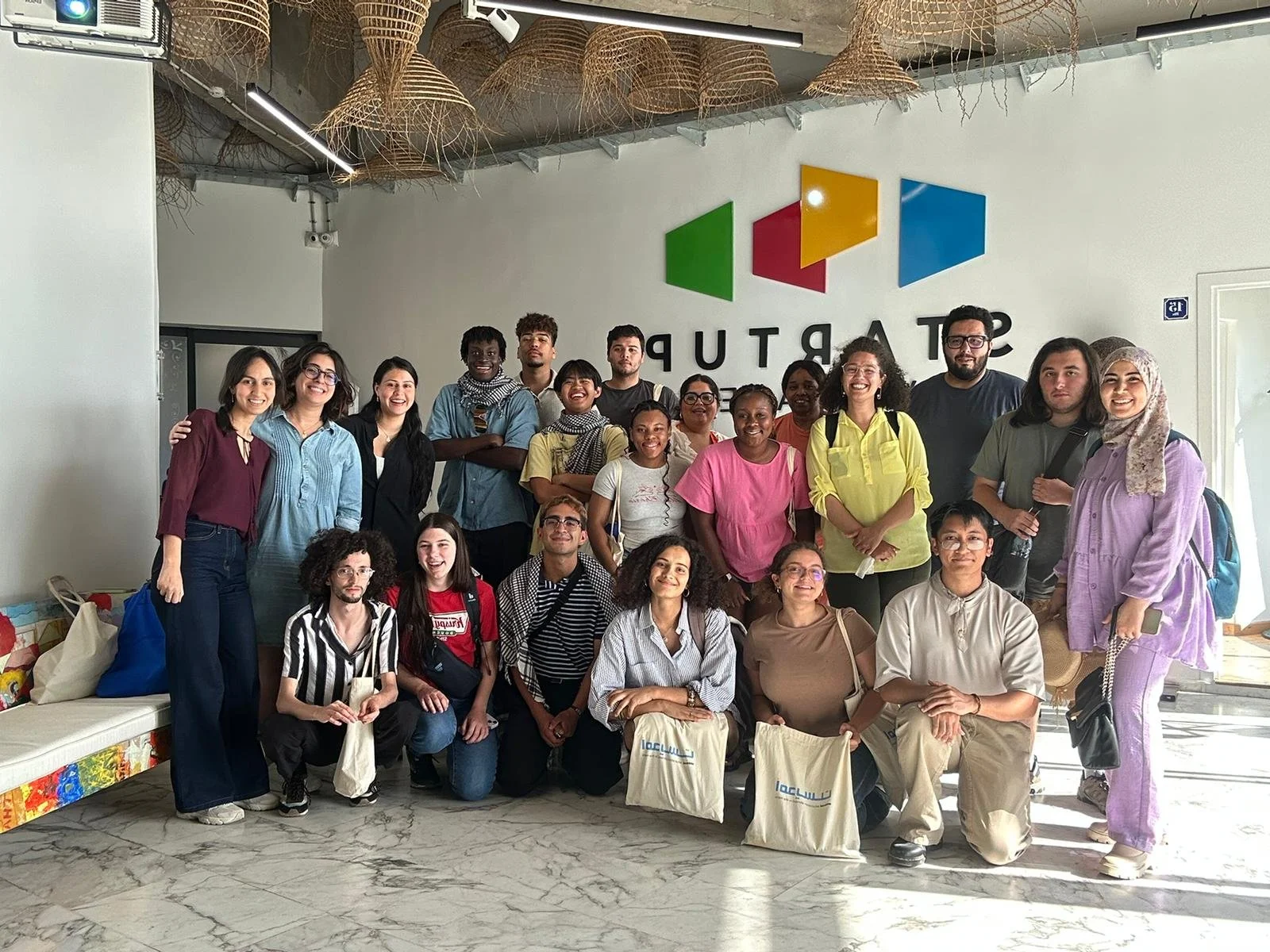
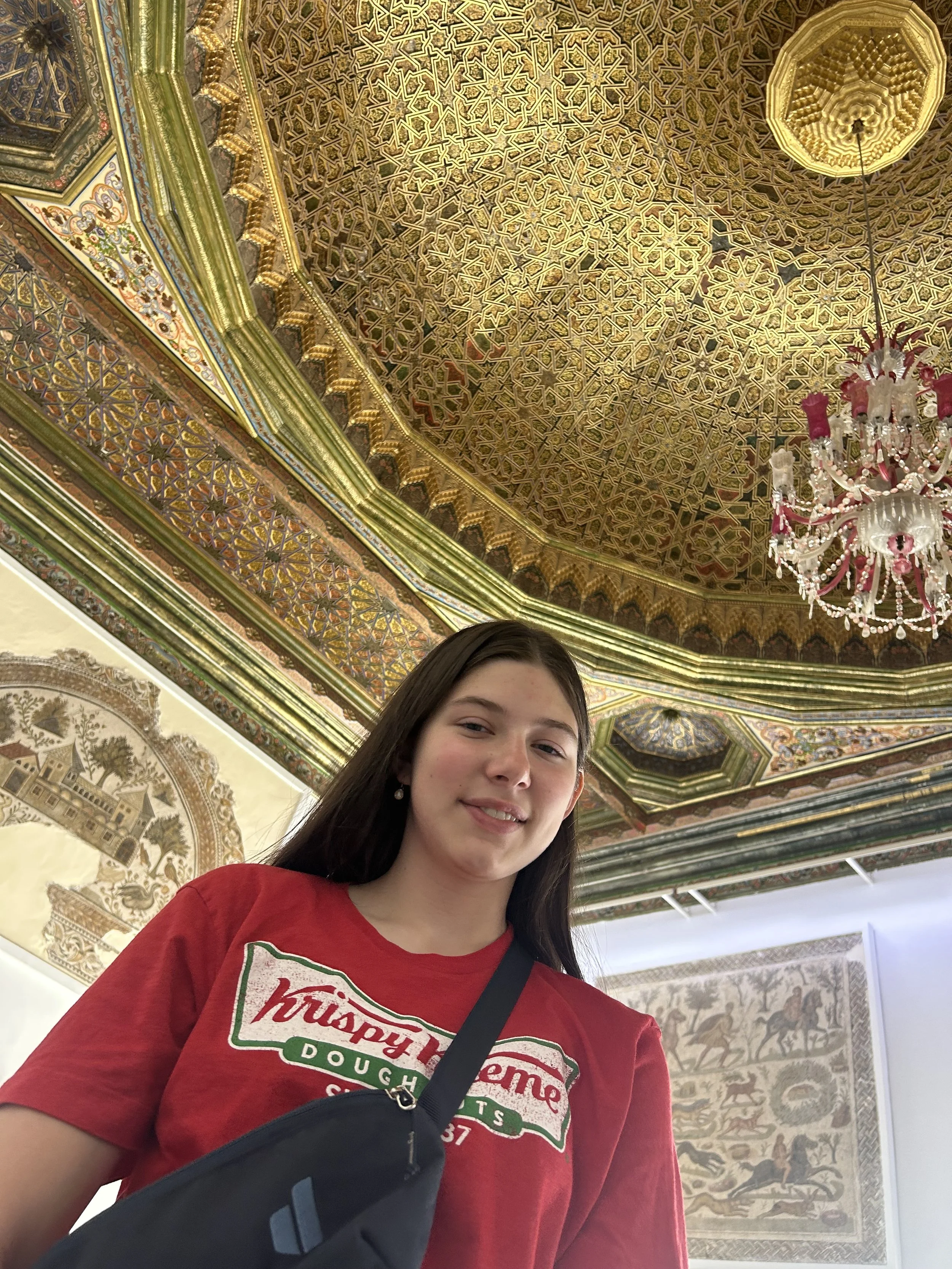
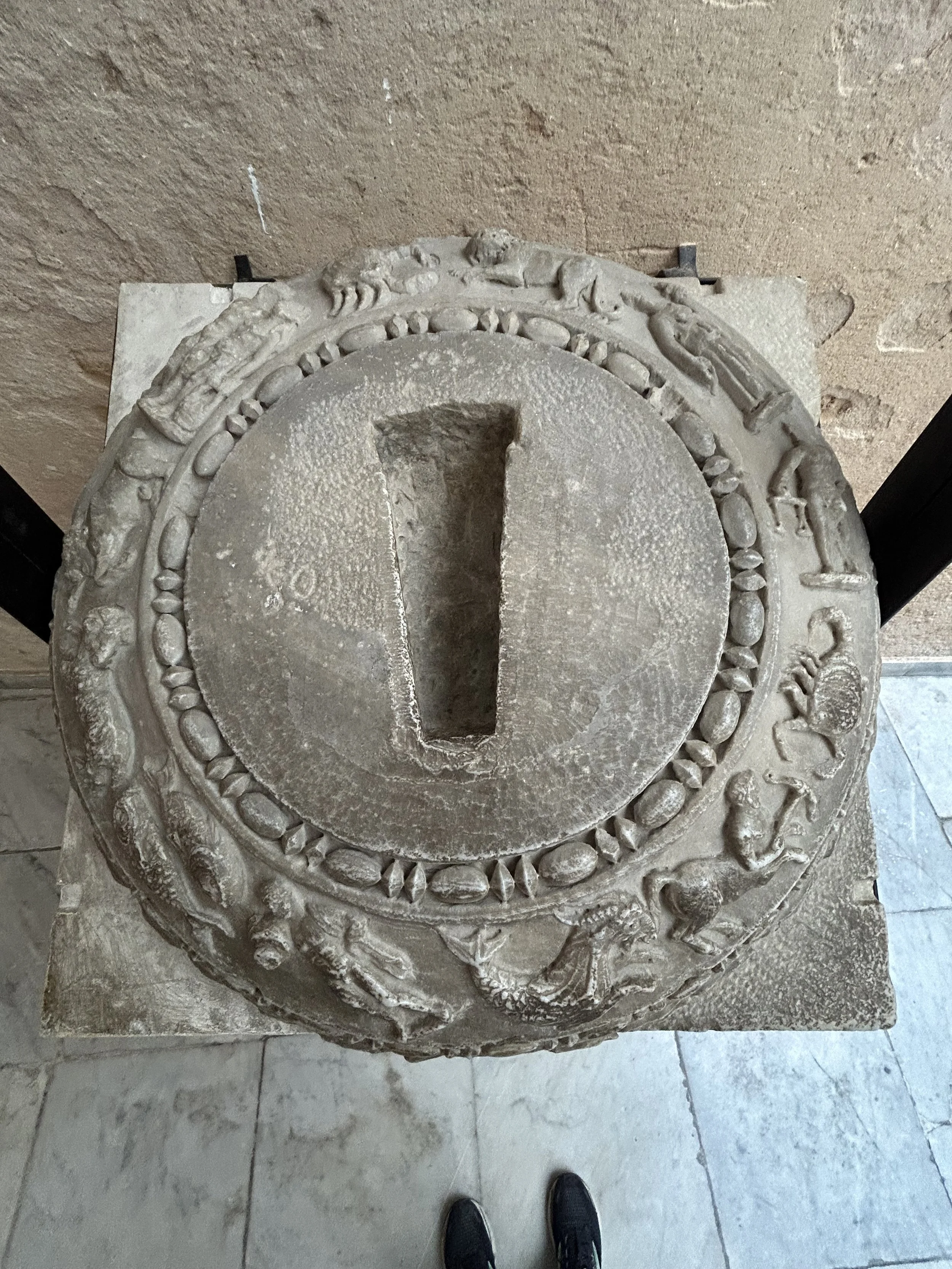
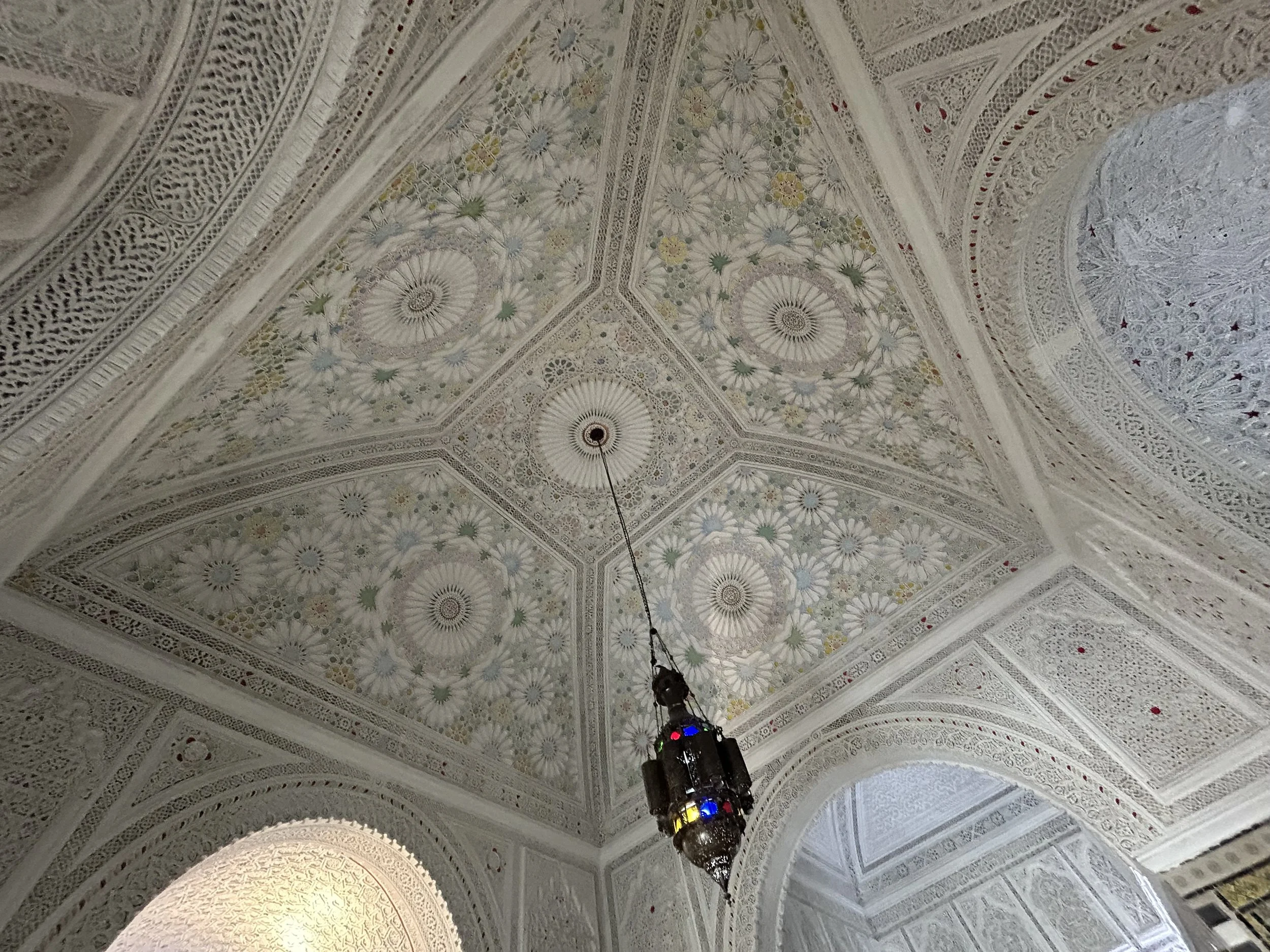
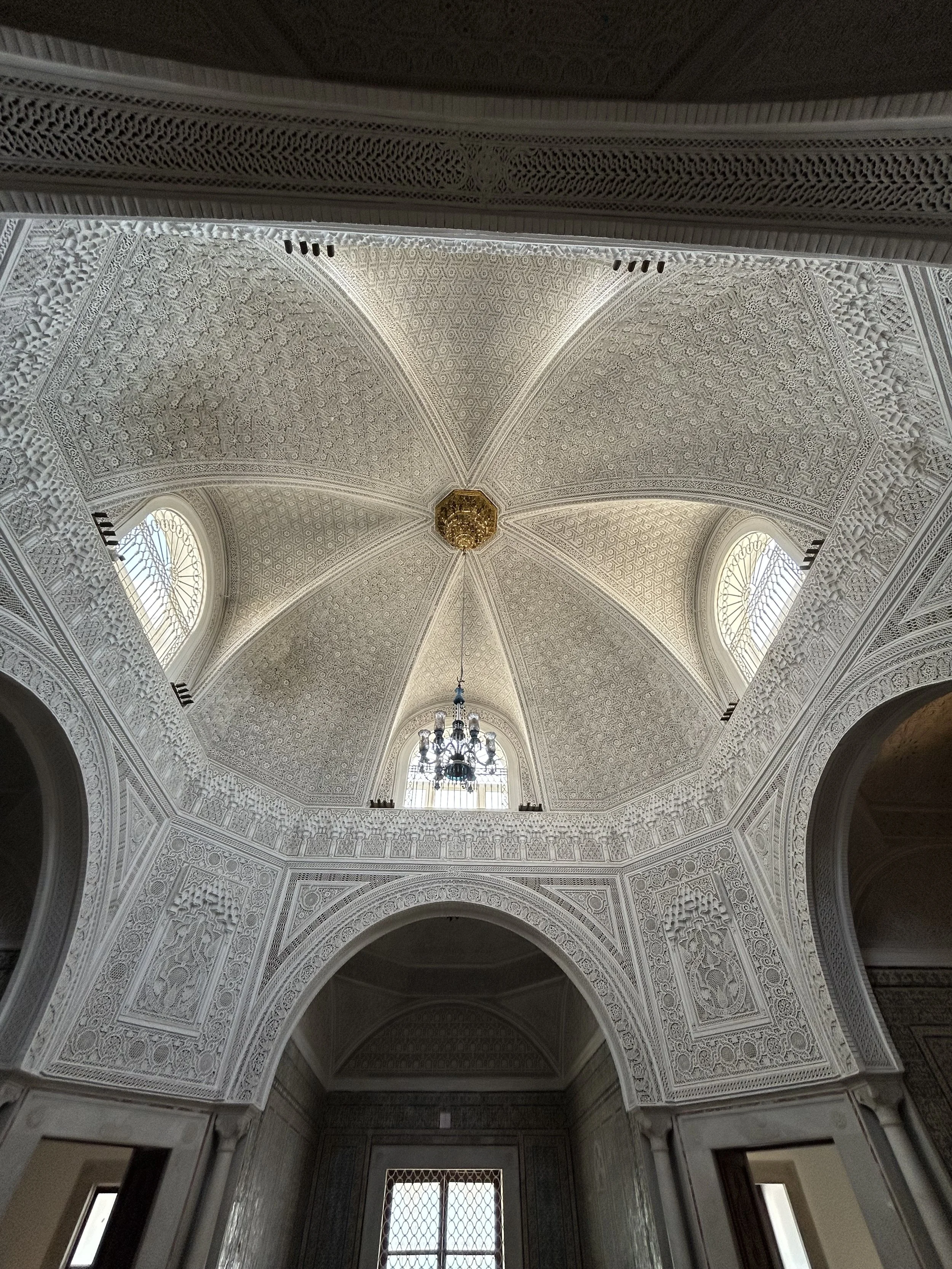
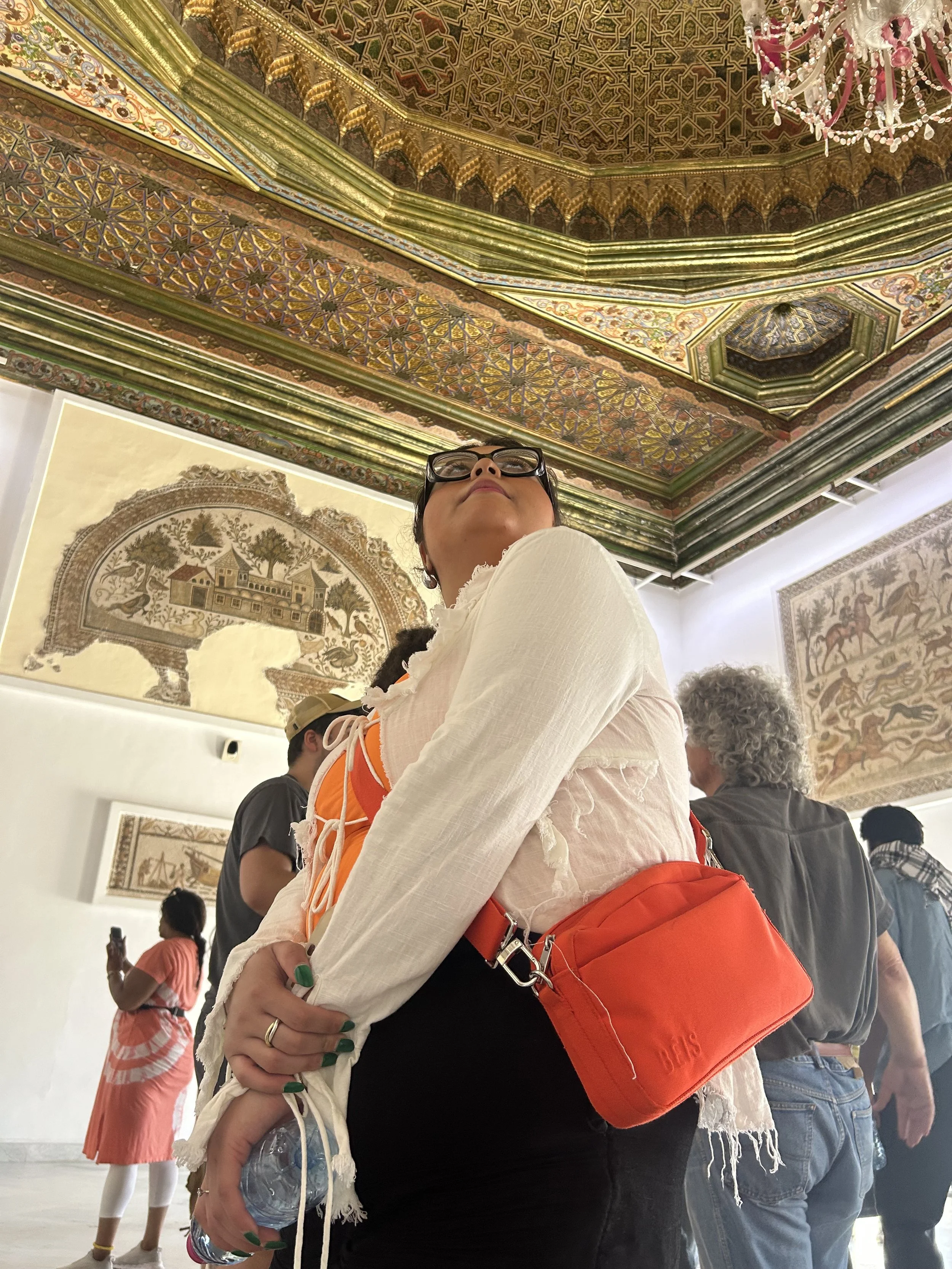
On Wednesday morning, I had the privilege of touring the nationally-famous Bardo Museum! The Bardo Museum is home to hundreds of artifacts originating from a variety of ethnic groups which blend into modern Tunisia, and more murals than I could count. While the murals were vast and impressive, I noticed a recurring characteristic: many of the figures in the murals were missing their heads! I asked our tour guide, Hatem, why that was, and he said that thieves often chipped out the heads because they were the most expensive part of the mural.
After lunch, we headed to Startup Village, a modern “cothinking” space which supports startup entrepreneurs, for our final discussion of the program: Tunisia’s startup ecosystem. I learned about the specific laws and organizations that make Tunisia an attractive location for startup entrepreneurship. We also enjoyed a tour of Startup Village, whose collaborative space was outfitted with a modern atmosphere and upcycled art.
Day 8 (Thursday, June 5):
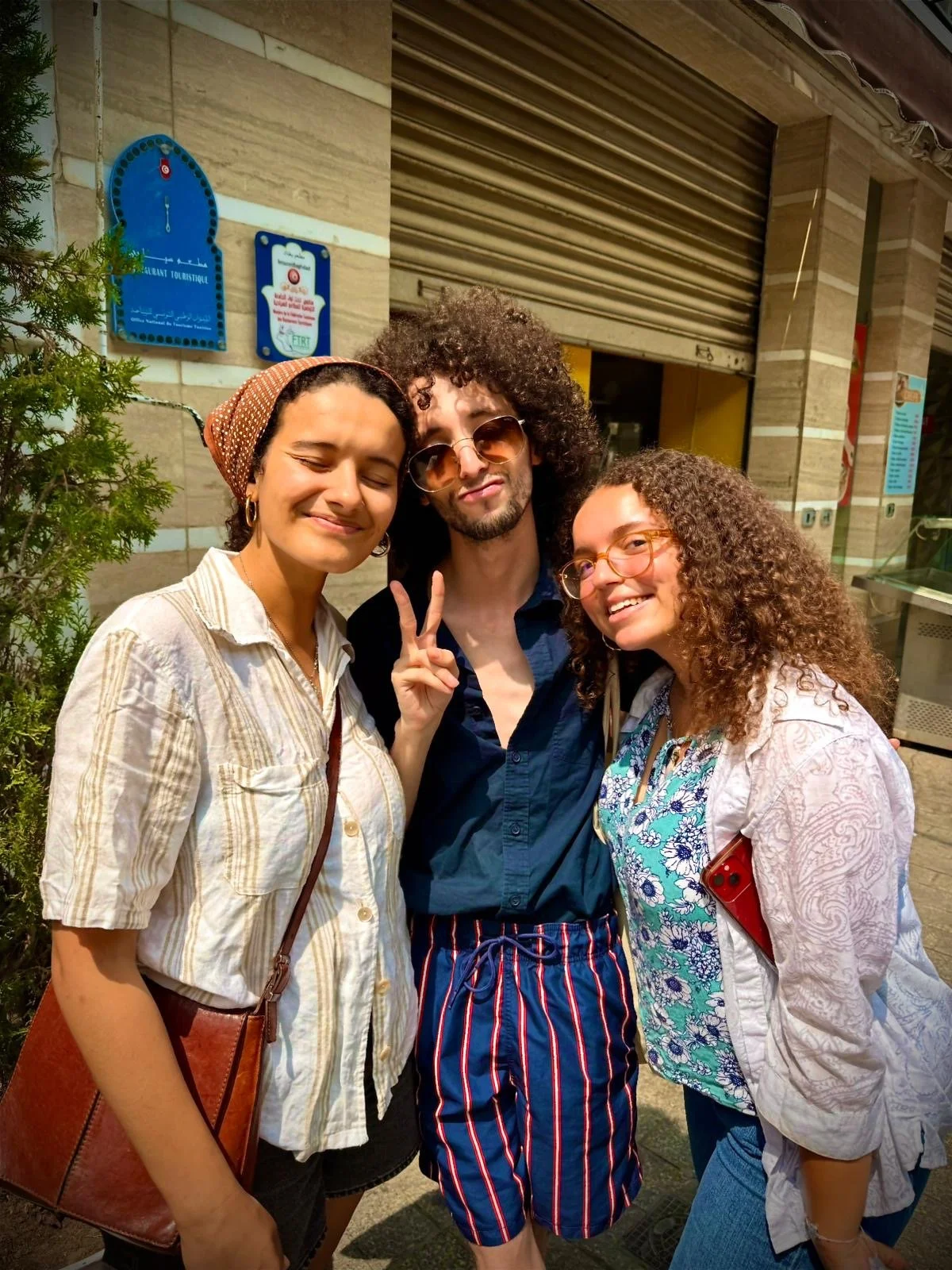
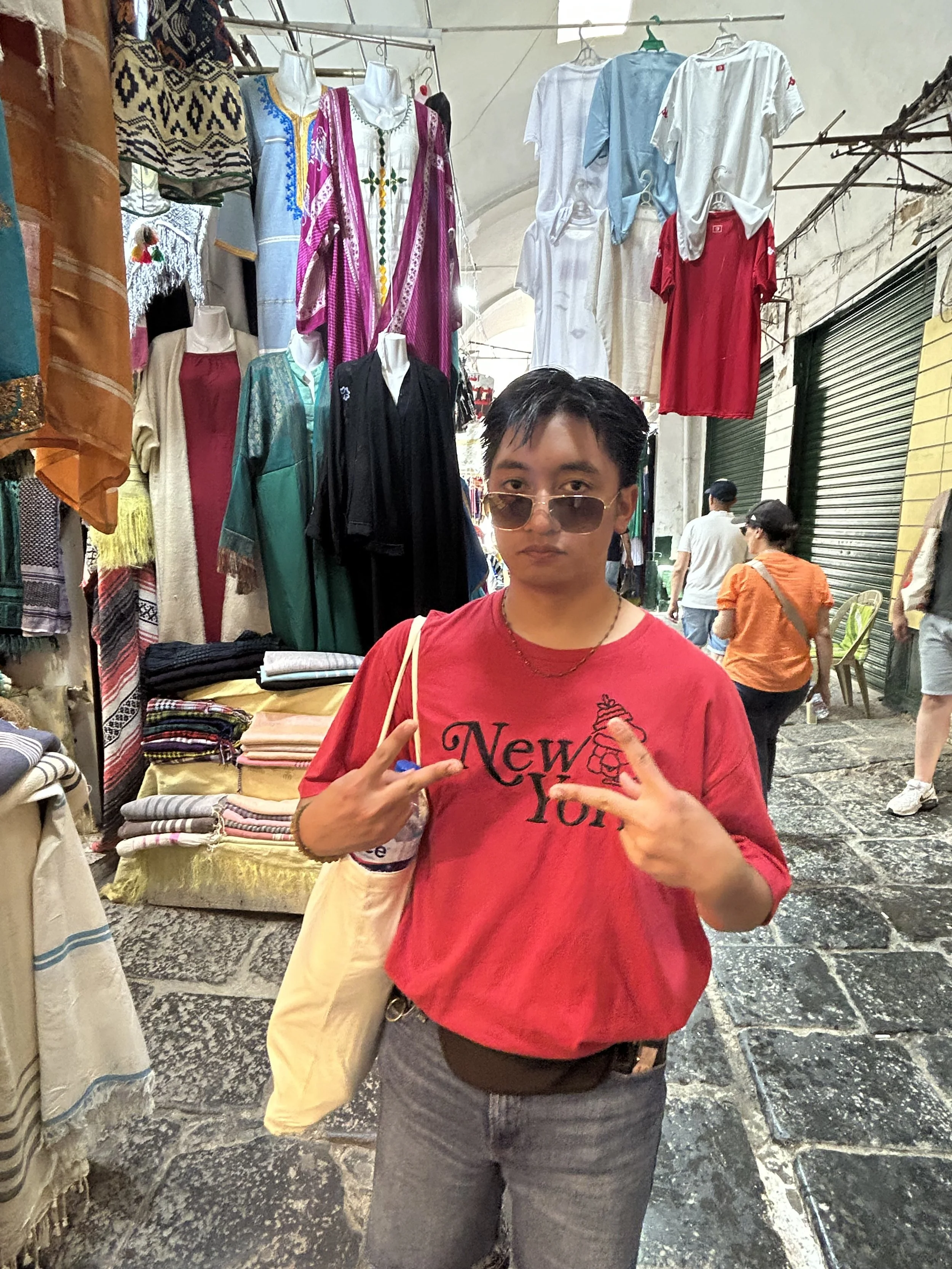
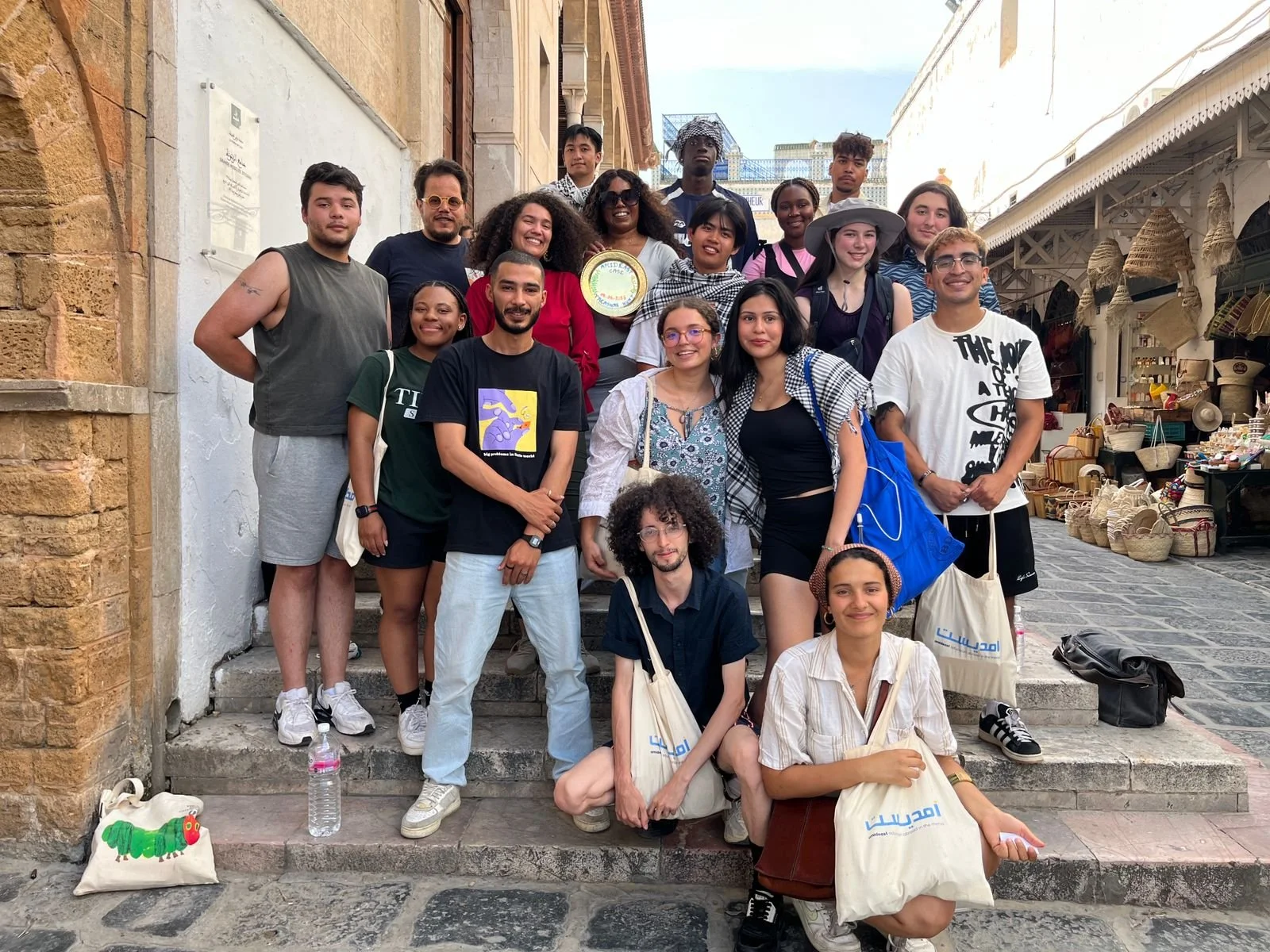
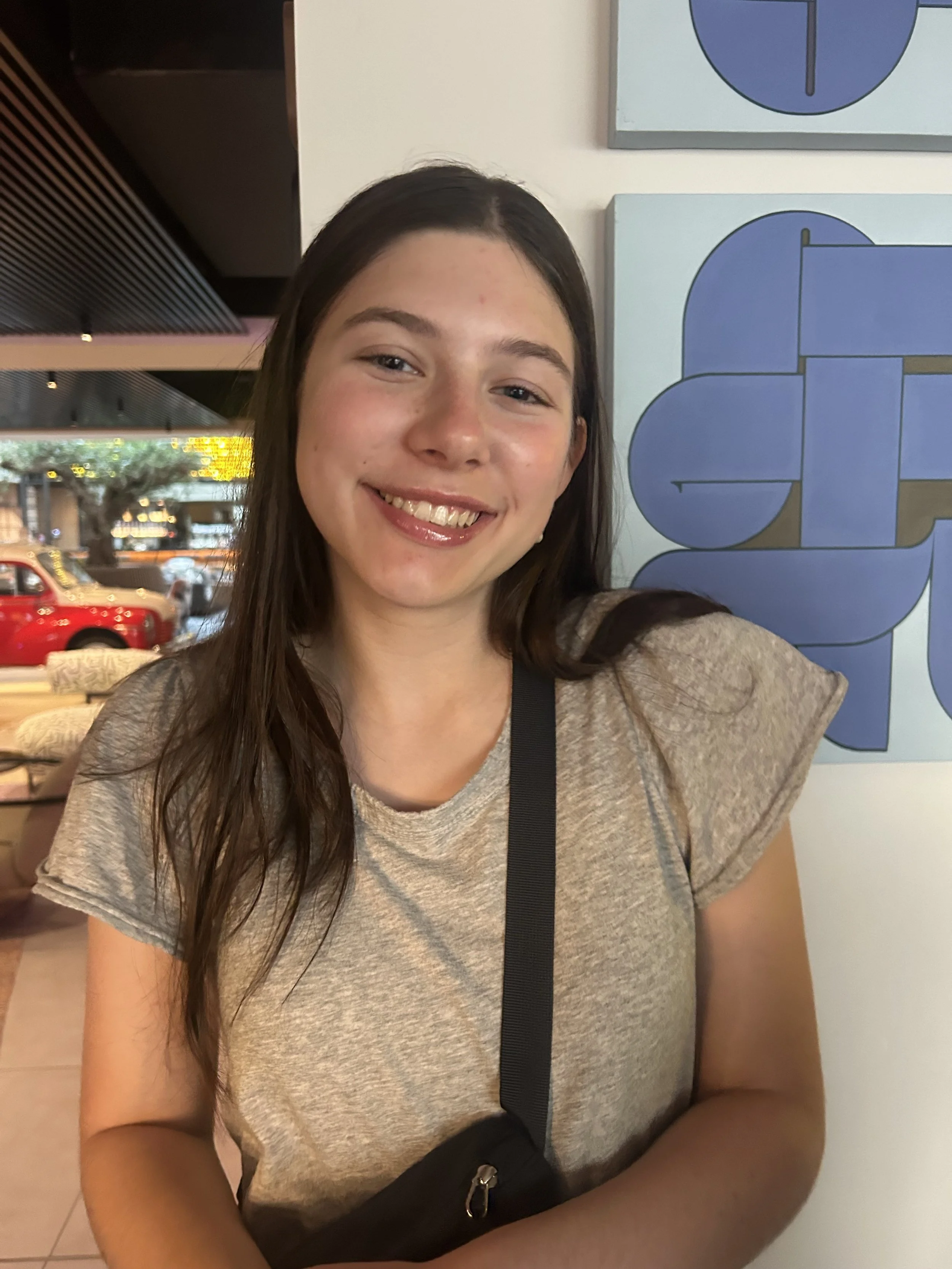
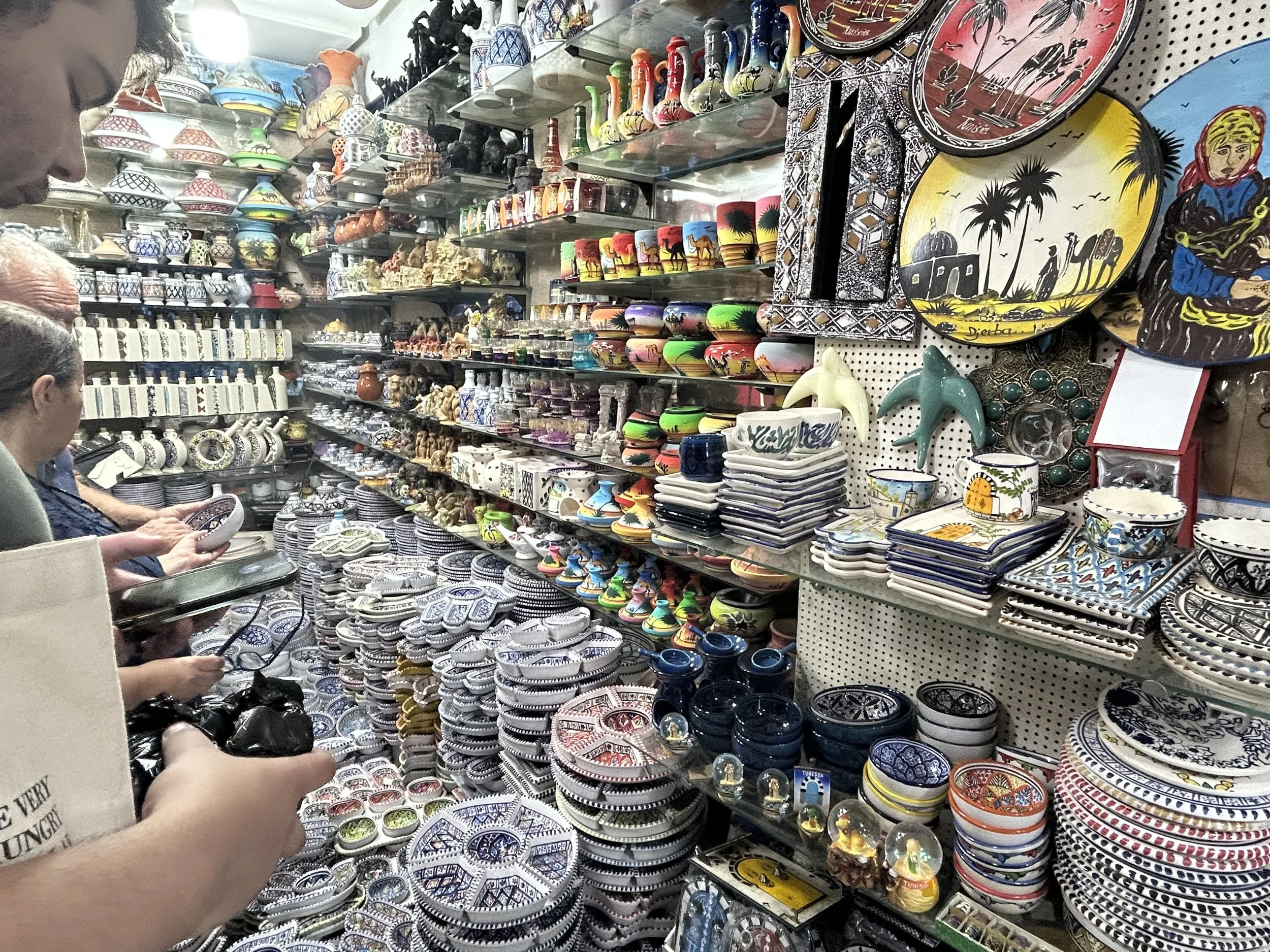
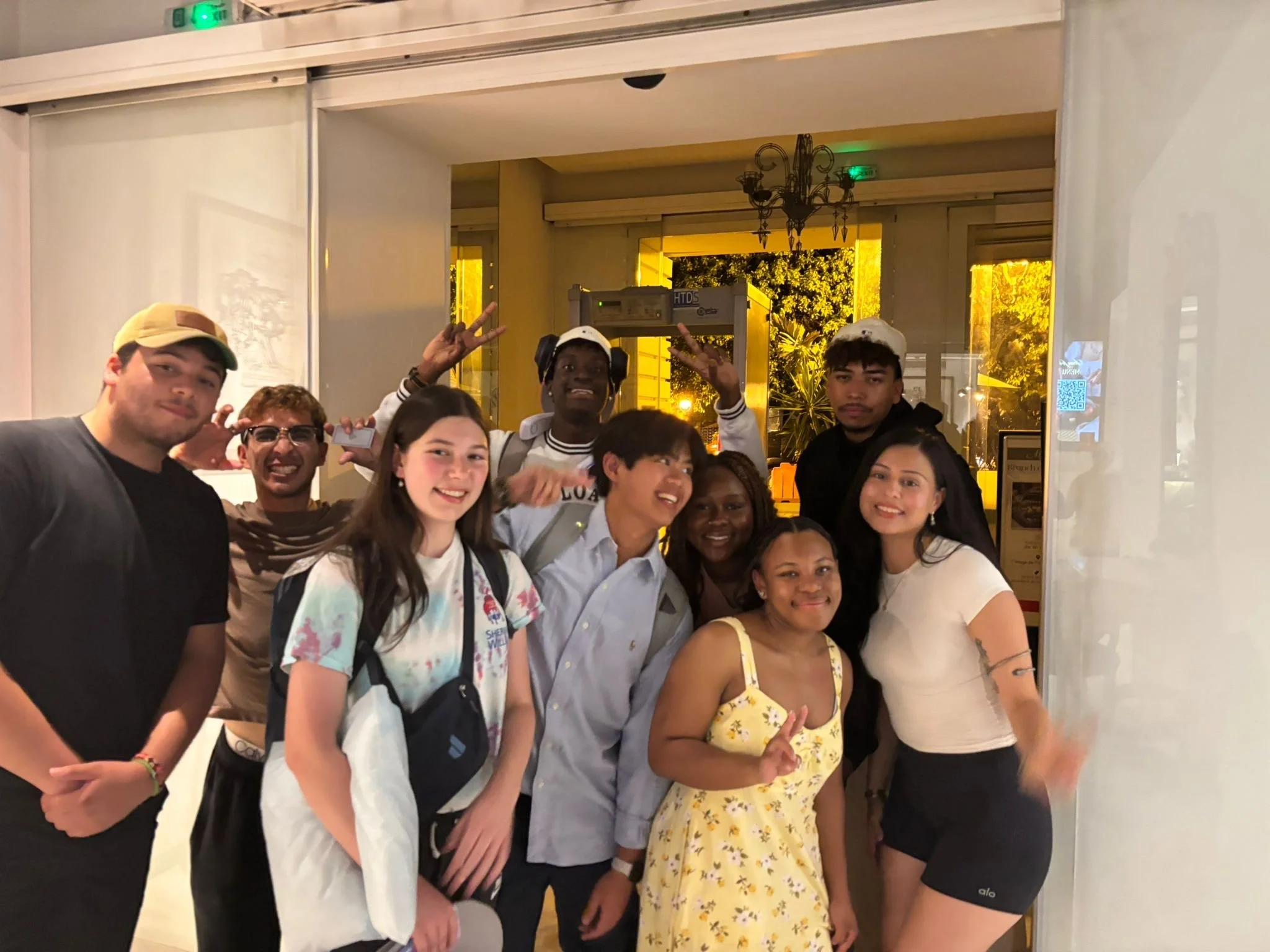
The final day may have been my favorite day. Us students were given the morning as free time, and we formed groups to revisit our favorite spots. One group returned to Sidi Bou Said, and myself and three others revisited my favorite spot: the Medina. While I’d been eyeing sweets and souvenirs in the Medina each time we passed through, we’d had little time to go shopping on our own. Spending the morning wandering through the Medina was an unforgettable experience! I shared a box of kaak warka (a small donut-like pastry) with my friends, and got my first experience bartering with salespeople. While this is not common in the US, it is almost expected in the Medina. Travel tip #6: do not be afraid to haggle with salespeople in the Medina. Feel free to ask your peers or Amideast staff any questions you may have about bartering - they will be more than happy to help!
Our farewell dinner was at a modern restaurant integrated with a hospitality school called The Nine. While not traditional, the food was delicious. It was a bittersweet evening - the trip was unforgettable, and many of us were not ready to return home.
That night, about half the group, myself included, took the bus to the airport to catch our 1:50am flight home. I remember feeling exhausted and elated. I did not want to go!
Traveling to Tunisia is an experience I will never forget. The friends and memories I made during the program will stay with me forever. I would highly recommend that anyone who is interested in traveling internationally, practicing a language abroad, or expanding their cultural competency to apply for the CASE program!
Clover Gerber is a student at Lone Star College and participated on the Community and Social Entrepreneurship (CASE) program in summer, 2025.






